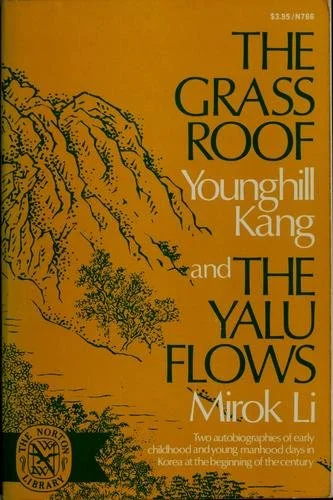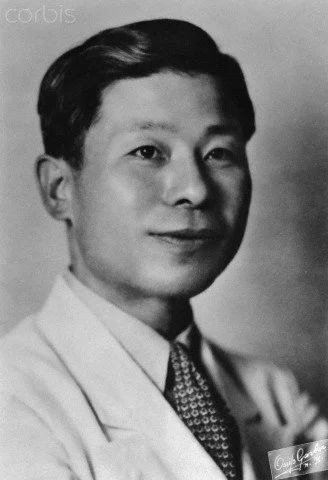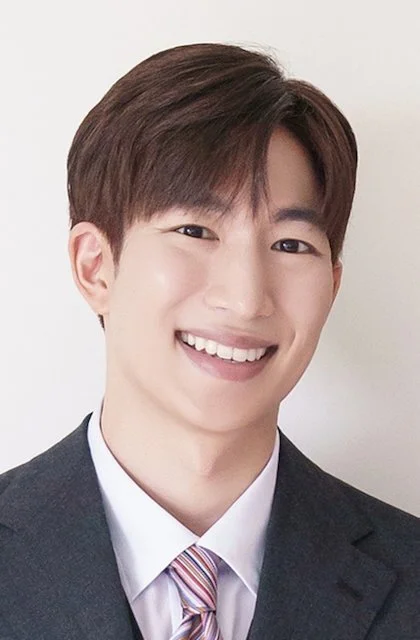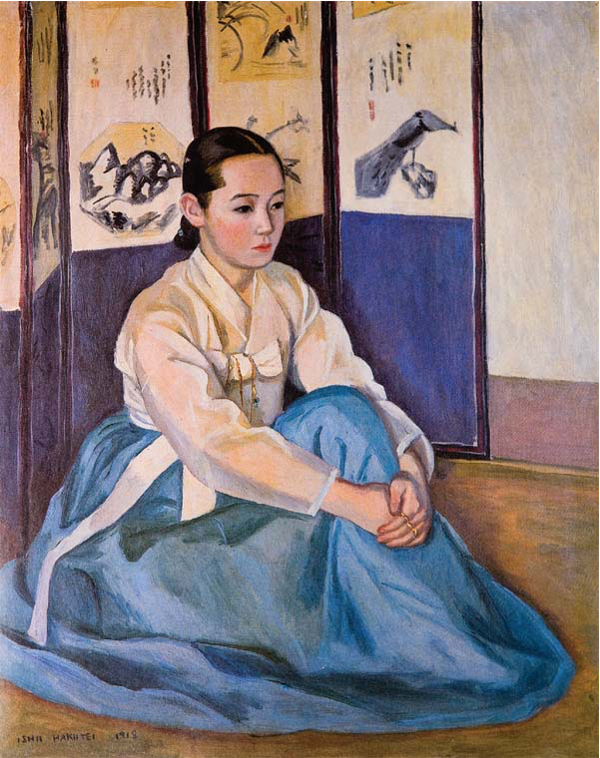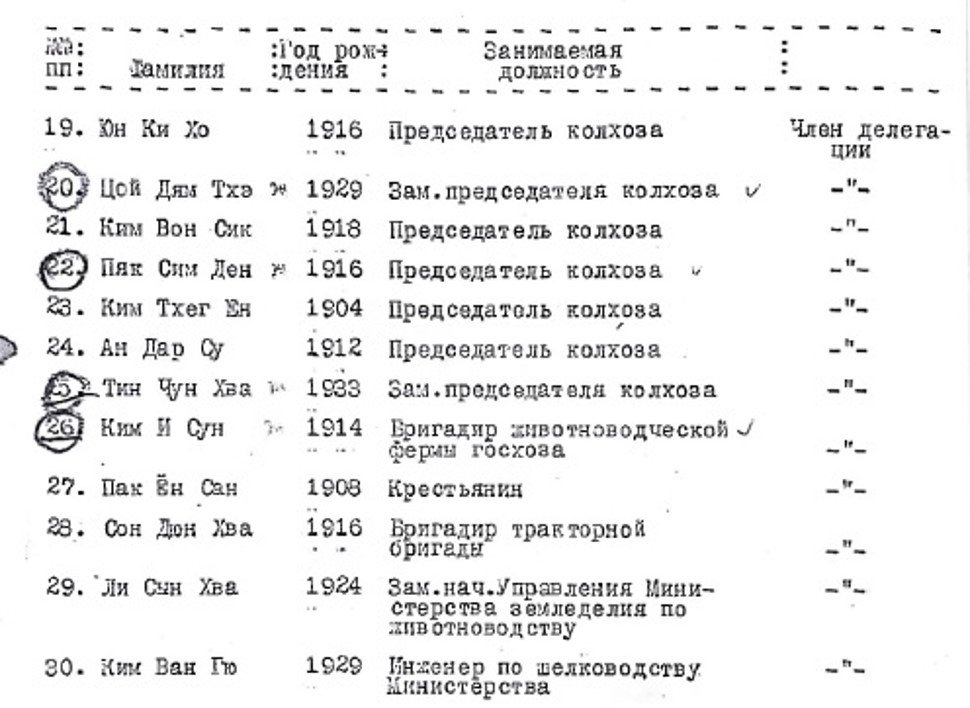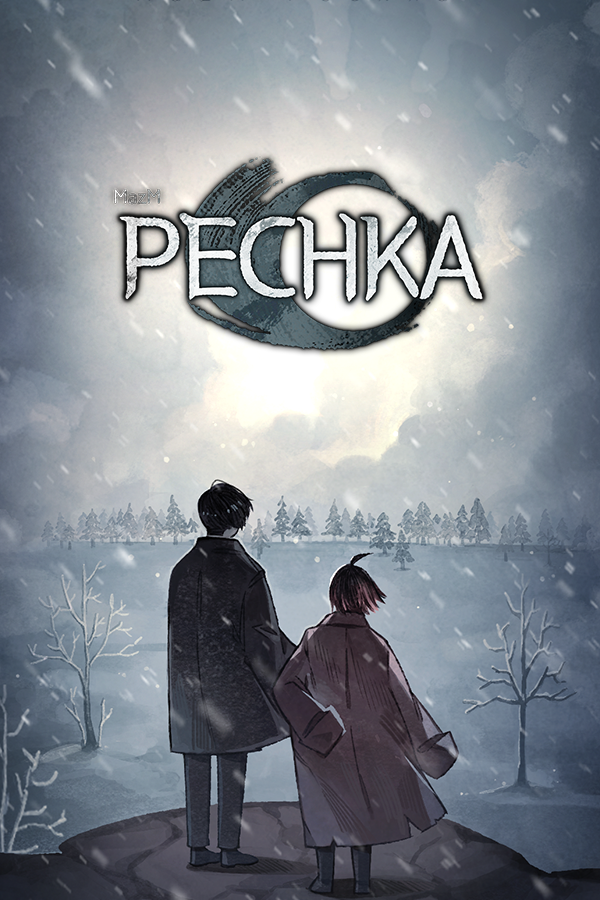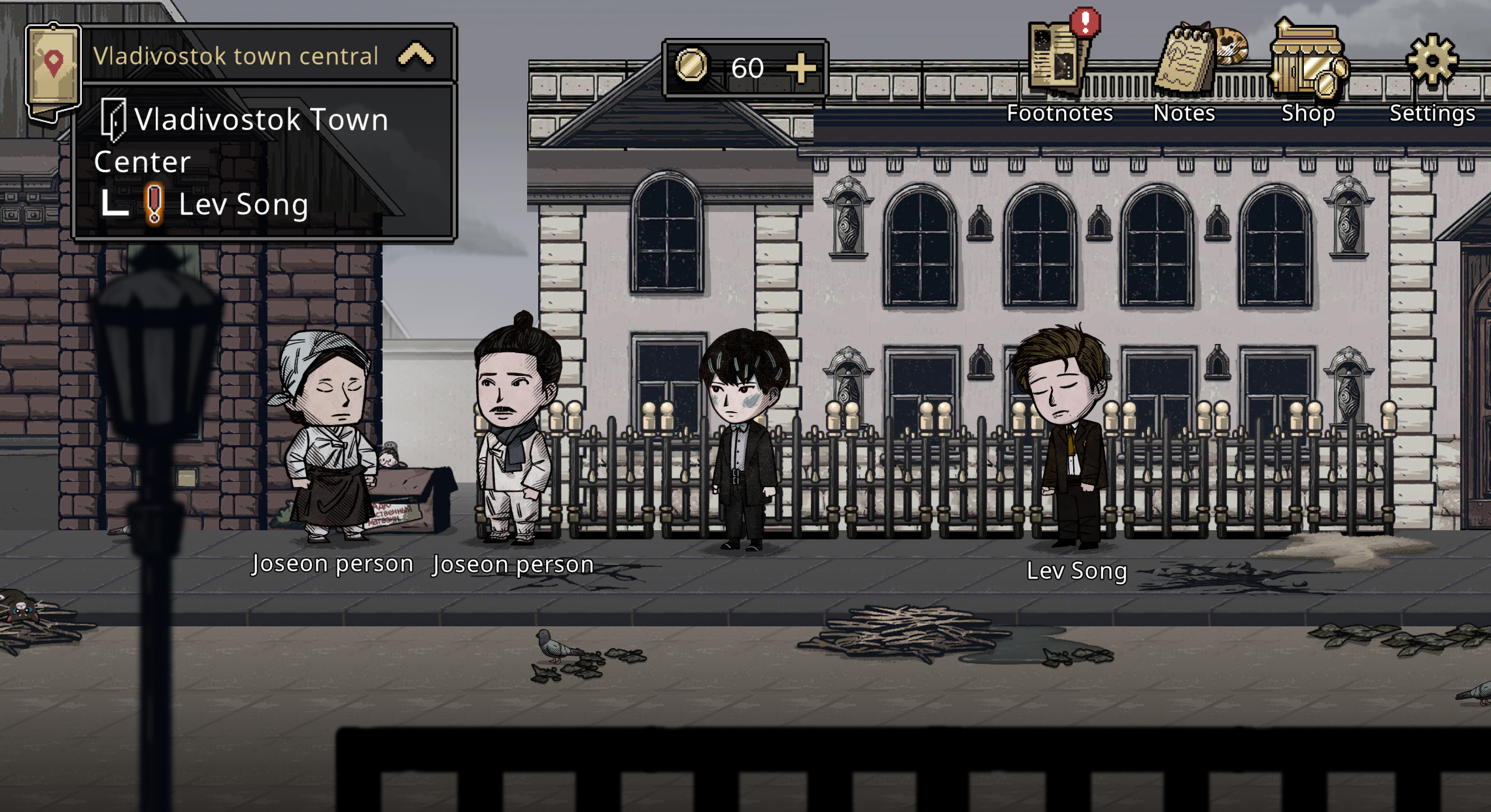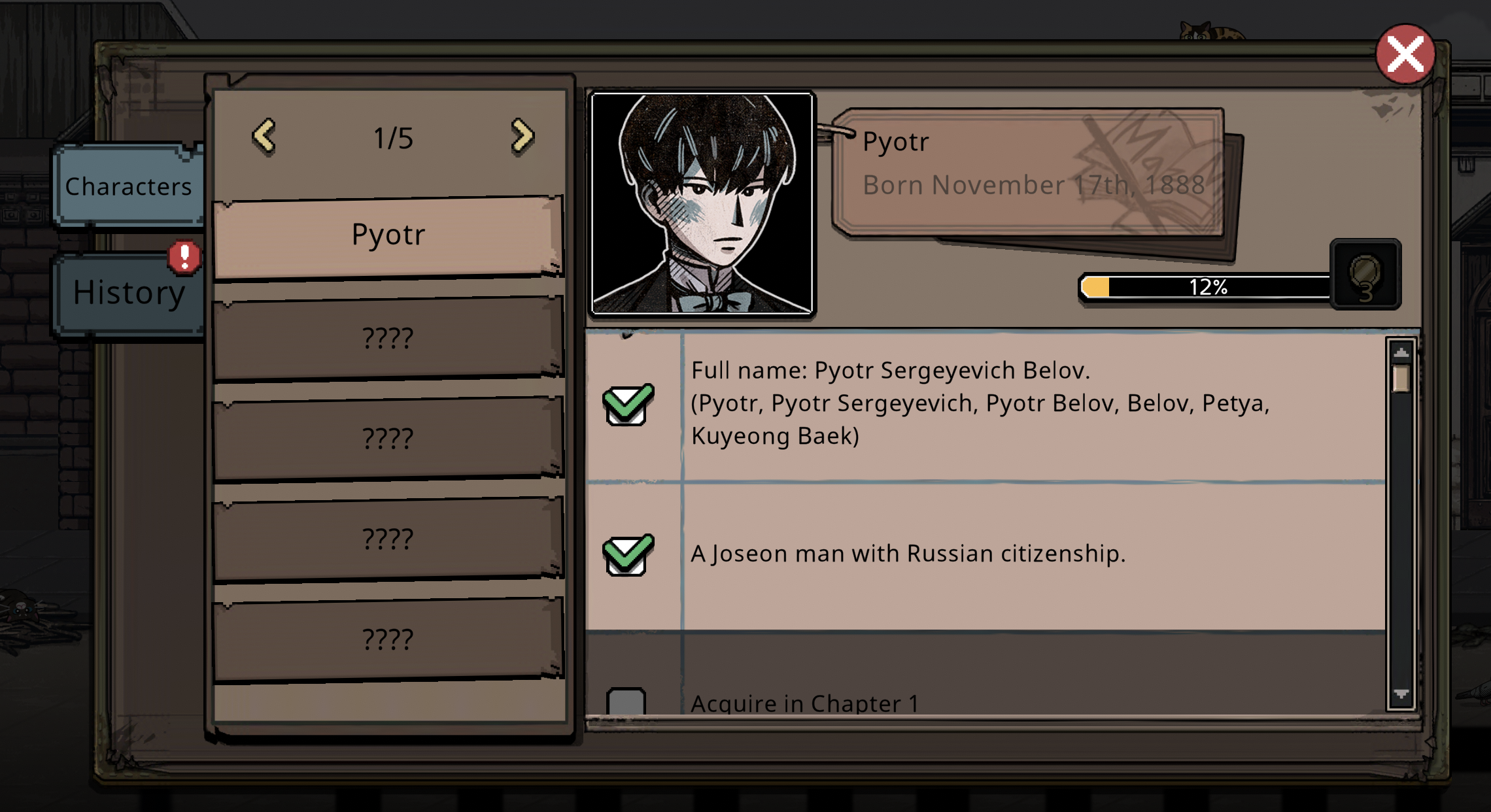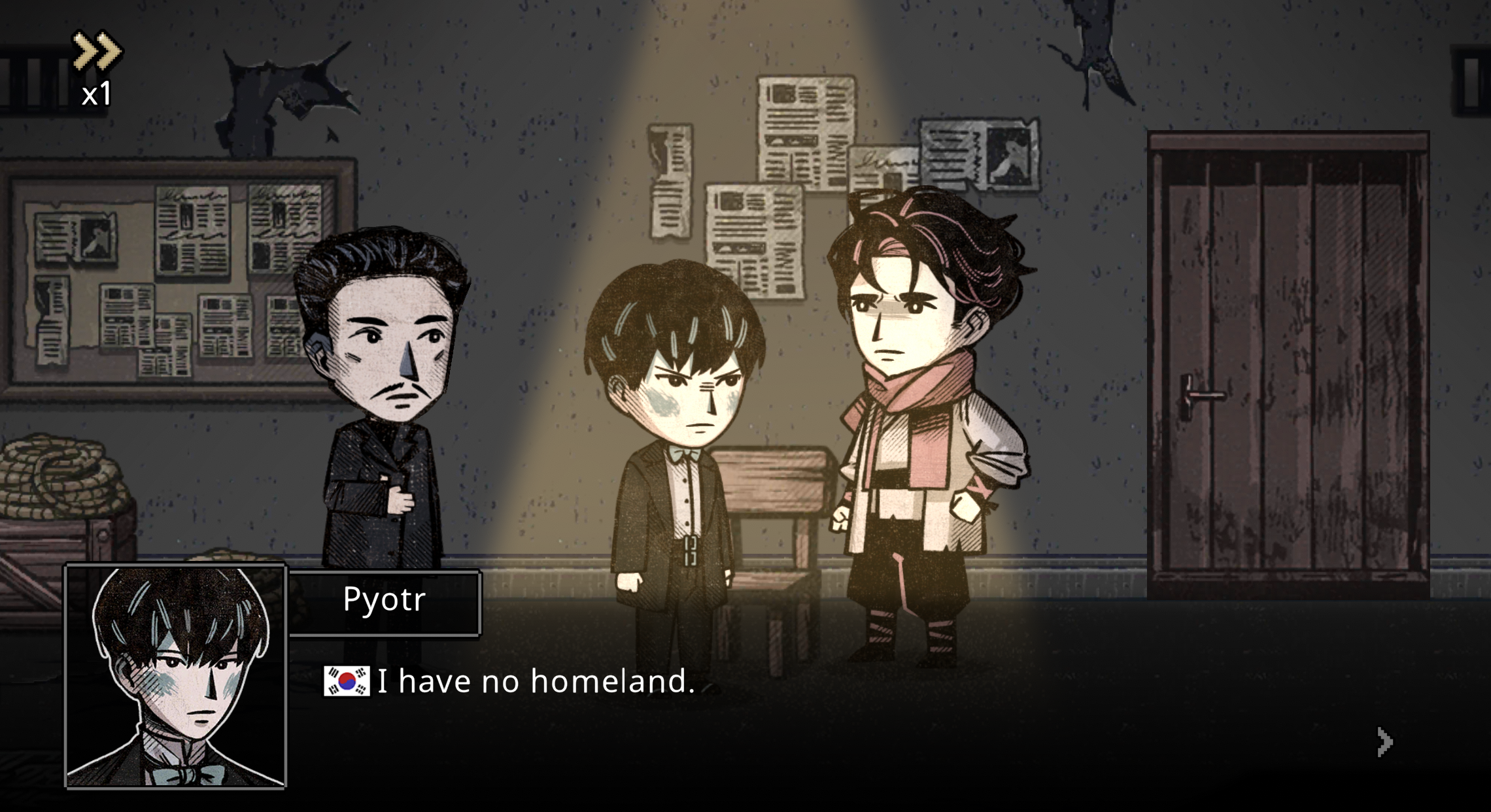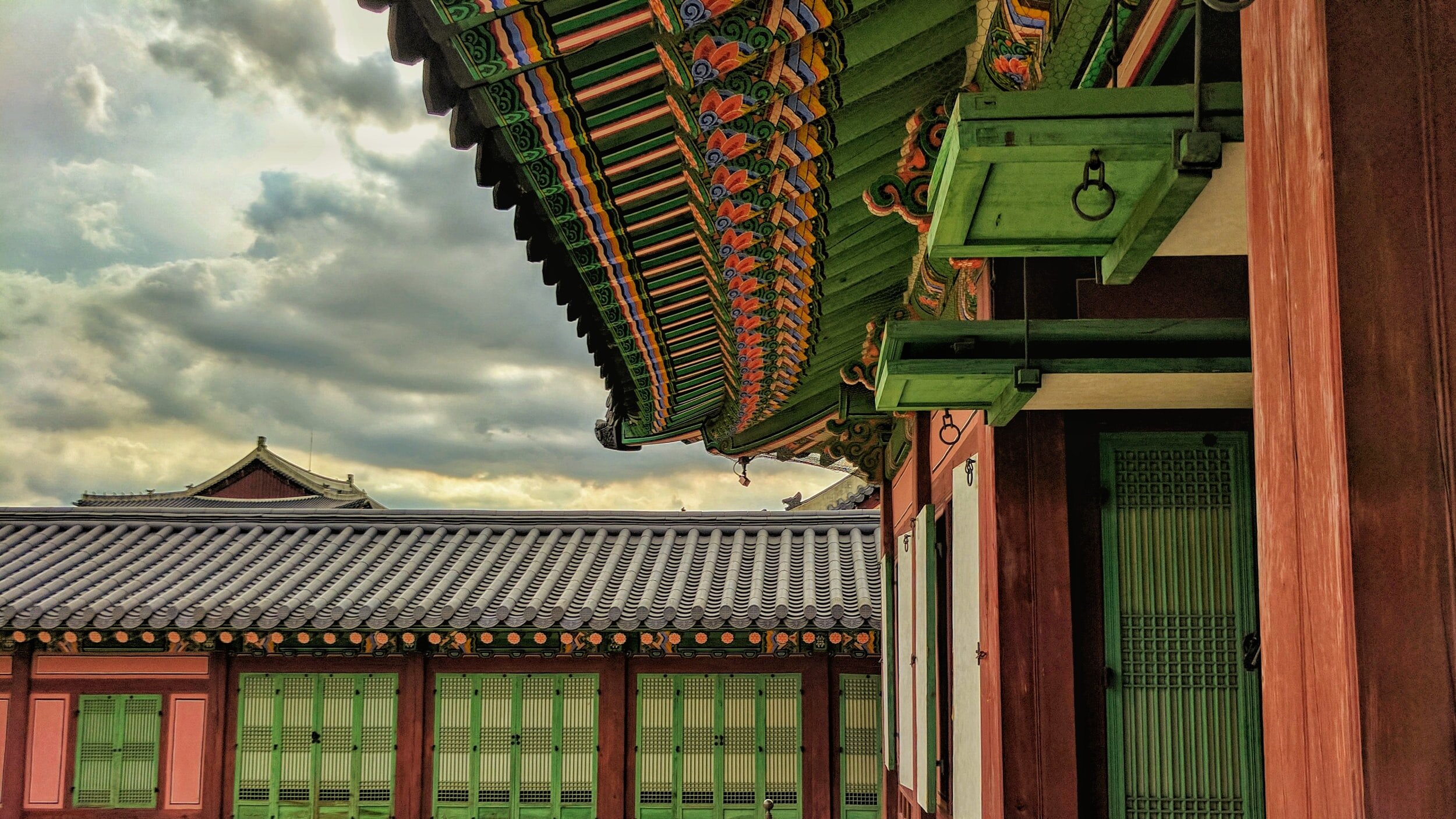
Events

How Younghill Kang Brought Chŏson Fiction’s Love of Inset Poetry (揷入詩) into English
How Younghill Kang Brought Chŏson Fiction’s Love of Inset Poetry (揷入詩) into English
Presented by Spencer Lee-Lenfield, Assistant Professor, Harvard University
This Zoom event will take place on Feb 19, 3:00 pm (LA Time) / 6:00 pm (Boston Time) / Feb 20, 8:00 am (Seoul Time).
Please register: https://us02web.zoom.us/meeting/register/DRxLrdiZRoutqQ7WGxliCw
Abstract
Younghill Kang’s 1931 The Grass Roof, long taken as the first commercially successful novel by a Korean in English, is unusual for incorporating sixty-five of its author’s translations of East Asian poetry into its narrative fabric (These embedded translations represented one of the earliest overseas mass audiences for Korean poetry.) I argue in this presentation that The Grass Roof’s extensive poetry citations adapted the literary convention of inset poetry (揷入詩) from the pre-modern Korean novel—in particular, Kuunmong and Ch’unhyangjŏn—hybridizing it with English-language autobiographical fiction.
About the Speaker
Spencer Lee-Lenfield is an assistant professor in the Department of Comparative Literature at Harvard University. They are currently adapting their dissertation, This Beauty Born of Parting: Literary Translation between Korean and English via the Korean Diaspora, 1920–Present, into a monograph. Other recent research has appeared in publications including Criticism, PMLA, Poetics Today, Narrative, and Modern Language Quarterly. This presentation borrows from an article scheduled for publication in the Journal of Korean Studies in 2027.
Moderator
HeeJin Lee is Assistant Professor and Marianna Brown Dietrich Breakthrough Scholar Chair of Korean Studies at the University of Pittsburgh. She is a scholar of modern Korean literature with research interests in Cold War cultures and the politics of decolonization in comparative contexts. Lee is currently working on her first book manuscript, which traces how anticommunism in Korea during the early years of the Cold War shaped what we know about modern Korean literature today.

Irene Choi: Rethinking Minhwa - Colonial Visuality and the Afterlives of Late Chosŏn Screens
Rethinking Minhwa: Colonial Visuality and the Afterlives of Late Chosŏn Screens
Presented by Irene Choi, Visiting Scholar, Seoul National University.
This Zoom event will take place on Jan 14, 04:30 - 6:00pm (LA Time) / 07:30 - 09:00pm (New York Time) / Jan 15, 09:30 - 11:00am (Seoul Time).
Please register: https://us02web.zoom.us/meeting/register/m6DuF51eSASzERJjugRxqA
Abstract
This talk reframes paengnapto 百衲圖 (pictures of a hundred patched pieces) screens as a critical site for rethinking the modern category of minhwa 民畫 ("folk painting") and the visual regimes that produced it under Japanese colonial rule. Emerging in the late Chosŏn period, paengnapto folding screens were composed of numerous small paintings and calligraphic excerpts—either pasted onto the surface or meticulously simulated—arranged into composite pictorial fields. These screens cultivated a mode of viewing and consuming art and calligraphy grounded in compilation, erudition, and textual and visual literacy, linking the court, professional painters, and urban markets through practices of collecting, connoisseurship, and mounting. While examining both extant paengnapto screens and their representations in the early twentieth century within the colonial context, this talk interrogates the category of minhwa, since many later examples of paengnapto, often anonymous works produced during this period, came to be classified as minhwa in Korean art history and museum collections. Entering a new visual regime shaped by colonial systems of display, ethnography, and art-historical writing, Korean screens, including paengnapto, were reframed within discourses that defined minhwa as an aesthetic of anonymity and local color (hyangt’osaek 鄕土色), positioning it as both ethnographic evidence and a marker of “Korean” cultural essence. By examining twentieth-century representations of paengnapto, this talk analyzes the constructedness of minhwa as a colonial taxonomy and explores how paengnapto screens, through their materiality and fluid acts of citation and recombination, destabilize that system and reveal the fissures that continue to underlie the historiography of Korean art.
About the Speaker
Irene Choi is an art historian specializing in Korean and East Asian art, with research interests in materiality, visual circulation, and cross-cultural exchange in East Asian art. She received her BA (Honours), MA, and PhD in Art History from the University of British Columbia, where her graduate research was supported by the Social Sciences and Humanities Research Council of Canada (SSHRC). She previously held a Junior Fellowship at the Kyujanggak Institute for Korean Studies, Seoul National University, and is currently a Visiting Scholar (December 2025–26) at the Seoul National University Asia Center. Her research focuses on the visual and material culture of late Chosŏn and modern Korea, examining the intersections of collecting, materiality, and the historiography of Korean art history. Her work on late Chosŏn Ch’aekkŏri appeared in Journal18: A Journal of Eighteenth-Century Art and Culture (2020), and her broader interests include transmediality and the formation of art-historical knowledge in East Asia.
Moderator
James Flowers is a Brain Pool Program Research Fellow at the Climate-Body Institute in Kyung Hee University, and program advisor of the Choson History Society. He is a historian of medicine, focusing on traditional medicine in Korea. His current book project focuses on the range of traditional Eastern-medicine healers in Korea 1910-1945. He received his PhD from the Department of the History of Medicine, the Johns Hopkins School of Medicine.

Korean Folklore and Mythology in Tabletop RPGs: Minki Kim and Nine Heavens Press
Please join Chosŏn History Society for an online conversation with Minki Kim, the lead writer and project manager of Nine Heavens Press, which has published two East Asian and Korean folkore-inspired tabletop RPGs, Undying Corruption and The Black Market Guide to Immortality. Nine Heavens Press represents a group of Korean and Asian diaspora creators with experience in the animation, game, and comics industries. He will be joined by Dr. Timothy Tangherlini, Professor of Danish Literature and Culture at UC Berkeley and expert in Korean folklore studies..

Kunha Kim: Was the Military Service System in Joseon Fair? A Digital Historical Approach to the Military Institution of the Joseon Dynasty
Kunha Kim: Was the Military Service System in Joseon Fair? A Digital Historical Approach to the Military Institution of the Joseon Dynasty
Presented by Kunha Kim, Research Professor, Sogang University.
The event will take place on Oct 27, 04:00 - 5:30pm (LA Time) / 07:00 - 08:30pm (New York Time) / Oct 28, 08:00 - 09:30am (Seoul Time).
Please register: https://us02web.zoom.us/meeting/register/EJ_jKUdBRfKzGTSh0p5k9A
Abstract
In this talk, Kunha Kim examines whether the military service system of early Joseon Korea was fair, using a digital historical approach that combines textual analysis, statistical measurement, and spatial visualization. The Joseon dynasty proclaimed a principle of conscription proportional to households and population, yet it has remained unclear to what extent this principle was actually implemented and whether military obligations were equitably distributed across regions. To address this, the study analyzes the Sejong Sillok Jiriji (1454), a unique nationwide record that lists the number of households, population, and soldiers for 334 localities in a standardized format. By applying text mining to its XML files, I constructed a machine-readable dataset, which was then processed into CSV and GIS layers for quantitative analysis.
The results confirm that households and soldiers were closely correlated (r > 0.99), suggesting that the legal principle of population-based recruitment was broadly observed in practice. However, inequality indices reveal significant regional disparities. The Gini coefficient of 0.293 indicates a medium level of inequality, with burdens heavier in border and coastal regions, and lighter in inland areas near the capital. The Theil index decomposition further shows that 61% of inequality originated within provinces rather than between them, highlighting structural imbalances at the county level. These results suggest that although the principle of household- and population-based conscription was implemented nationwide, the system was neither uniformly fair nor entirely arbitrary, but rather strategically adjusted in accordance with geographical and political factors. By integrating digital methods into the study of premodern institutions, this research demonstrates how quantitative and spatial analyses can uncover hidden dimensions of fairness and inequality in historical governance.
About the Presenter
Dr. Kunha Kim is a Research Professor at Sogang University. He received his Ph.D. in Korean History from Sogang University in 2023, specializing in the military institutions and socio-economic dynamics of the Joseon Dynasty. His research primarily examines the transition from military service to military taxation, the practice of substitution, and the fairness of conscription in early Joseon Korea.
Dr. Kim previously served as a Research Assistant Professor at the Center for Digital Humanities & Computational Social Sciences (DHCSS) at KAIST, where he explored the integration of computational methods with historical research. He has also taught courses on Korean history, digital history, and GIS-based mapping at Sogang University, Korea University, the Korea Air Force Academy, and the Korea Armed Forces Nursing Academy.
Dr. Kim actively presents his work at academic conferences both in Korea and abroad, and continues to publish on topics related to the military system of the Joseon dynasty and the methodologies of digital history. His broader academic interest lies in using digital tools—such as text mining, quantitative analysis, and GIS—to uncover new insights into fairness, inequality, and state capacity in premodern Korea.

Joo-hee Choi: Financing the Kingdom: How Taxation Shaped the Joseon Dynasty's Endurance
Joo-hee Choi: Financing the Kingdom - How Taxation Shaped the Joseon Dynasty’s Endurance
Presented by Joo-hee Choi, Professor, Duksung Women’s University.
The event will take place on May 8, 5:00 - 6:30pm (LA Time) / 8:00 - 09:30pm (New York Time) / May 9, 09:00 - 10:30am (Seoul Time).
Please register here: https://us02web.zoom.us/meeting/register/8e4F3pJmRbe5YcDbKV3Ytg
Abstract
In this presentation, Joo-hee Choi will explain how the Joseon Dynasty maintained stability for over 500 years through sophisticated financial management, particularly during the Yeongjo and Jeongjo eras. While European states in the 17-18th centuries developed as "Fiscal-Military States" focused on securing war funds, the Joseon Dynasty pursued financial operations aimed at stabilizing the lives of common people through innovative tax reforms.
The 18th century marked Joseon's transition from a ‘tribute taxation state’ to a more systematic ‘fiscal state’. In particular, King Yeongjo's publication of Takjijeongrye (度支定例) and implementation of the “Uniform Tax Law (Gyunyeokbeop, 均役法)” created a crucial foundation for long-term fiscal austerity in the Joseon Dynasty. Yeongjo reduced the military cloth tax (gunpo, 軍布) from two pieces to one to ease the burden on the people while simultaneously implementing financial austerity beginning with the royal household, thereby creating a structure to control expenditures.
This financial policy of Yeongjo aimed to realize Confucian people-centered governance stated as “benefiting those below by reducing benefits for those above” (Sonsangikha 損上益下) and was recognized as a model by subsequent kings. Despite internal and external crises facing Joseon in the 19th century, Yeongjo’s people-centered financial reforms significantly contributed to the dynasty’s longevity until the mid-19th century.
King Yeongjo’s Royal Handwriting Plaque: “Equalize tributes to cherish the people, economize expenditures to accumulate national strength” (均貢愛民 節用蓄力).
About the Presenter
Dr. Joo-hee Choi is a Professor of Korean History at Duksung Women’s University. She received her bachelor’s and master's degrees from Ewha Womans University and earned her Ph.D. from Korea University with a dissertation titled “The Operation of Seonhyecheong (宣惠廳) and Changes in the Central Financial Structure during the Late Joseon Period.” Her previous positions include Research Fellow at the Academy of Korean Studies and Senior Research Fellow at the Korean Studies Promotion Service. Her research focuses on socioeconomic history of Joseon Korea, particularly financial systems and taxation policies. Major publications include “The National Economy of Late Joseon Dynasty Through Statistics" (2013), “Women's Spaces in Hanyang” (2021), and “Mediators Between Seoul and Provinces: Gyeongjuin (京主人)” (2024). Her current research explores the financial historical significance of meteorological records from the Joseon period.
Joo-hee Choi, State Governance and Royal Finance during the Yeongjo-Jeongjo Era (Taehaksa, 2025)

Lee Sangmin: Why Did They Sever Their Own Finger? - Discourse of filial piety and beyond in Early Chosŏn Korea
Lee Sangmin: Why Did They Sever Their Own Finger? - Discourse of filial piety and beyond in Early Chosŏn Korea
Presented by Lee Sangmin, Lecturer, Daejeon University.
The event will take place on April 24, 5:00 - 6:30pm (LA Time) / 8:00 - 09:30pm (New York Time) / April 25, 09:00 - 10:30am (Seoul Time).
Please register here: https://us02web.zoom.us/meeting/register/4xtT7iQIRBiusoTQV3hK6Q
Abstract
In early Chosŏn Korea, finger severing (danji 斷指) appeared as a distinctive form of filial piety, shaped by the ethical and emotional values of Confucian society. The practice first appeared during the reign of King T'aejong and gradually spread throughout the 15th and 16th centuries. The early Chosŏn government, aiming to cultivate a Confucian ethical order, actively incorporated certain customs into its vision of social reform—including finger severing, which was framed as an act of exemplary filial devotion.
However, the meanings attached to this practice were not uniform. While the ruling elite promoted it as a noble expression of Confucian values, many people in the wider society understood and practiced finger severing in a very different way. In particular, there is evidence that, among ordinary households, severed fingers were used as a kind of folk medicine—believed to serve as an actual remedy to cure sick family members. In such cases, finger severing was not performed to express ethical ideals, but to produce a material substance for medicinal treatment. This divergence highlights the gap between official intentions and everyday interpretations.
The story of finger severing in early Chosŏn Korea offers a window into the complex relationship between state policy, cultural values, and lived practice. It illustrates how efforts to promote Confucian norms often intersected with, and were reshaped by, local understandings and pragmatic concerns.
About the Speaker
Lee Sangmin is a lecturer in the Department of History & Culture at Daejeon University. He earned his Ph.D. from Yonsei University with a dissertation titled “Reconciling Enlightenment and Punishment: Institutionalizing Confucian Ideas in Late Koryŏ and Early Chosŏn.” His primary research interests lie in the history of social thought and cultural history from the Koryŏ dynasty to early Chosŏn. By examining customs, ideas, and patterns of cultural transformation, his research aims to understand how the relationship between the state and society shaped the processes of historical change.

Lee Kyung-hwa: Digital Transmission of Folk Beliefs - Resurgence of Samshin Faith Online
The folk belief and the deities in Korea that were once believed to be cast into oblivion recently resurfaced in our lives in an unexpected manner, in a place least expected: the Internet. Lee explores the various aspects of transmission of the Samshin faith within online communities, particularly in 'Mom Cafes,' and discusses the new phase of Korean folk belief.

Meng-heng Lee: Ming Legal Statutes and Korean Practice: Revisiting the Chinsan Incident of 1791
Meng-heng Lee: Ming Legal Statutes and Korean Practice: Revisiting the Chinsan Incident of 1791
Presented by Meng-heng Lee, Ph. D. Candidate, Columbia University.
The event will take place on Oct 25, 9:00 - 10:30am (Seoul Time) / Oct 24, 05:00-06:30pm (LA Time) / Oct 24, 08:00-09:30pm (New York Time).
Please register here: https://us02web.zoom.us/meeting/register/tZEvfu-urDkqHdWIWq1SOaAr2zexTiSsdfI9
Abstract
While Chosŏn Korea used The Great Ming Code as its penal code for centuries, its application of Ming statutes was nuanced and differed from its Ming-Qing Chinese model. Moreover, in legal cases, Ming laws were not the sole authority; Chosŏn also applied its own codified legal regulations. In addressing its first Catholic-related legal case, the Chinsan Incident of 1791, the Chosŏn state employed a mixed legal approach: the ruling elites referenced both Ming statutes, including an analogy-based provision, and a Korean-promulgated article, the “Three Fundamental Bonds and Five Constant Virtues” (kangsang-choe 綱常罪). This mixed legal practice and its historical implications warrant further scholarly attention. This study reexamines the Chinsan Incident’s historical significance by analyzing the legal rationale of Chosŏn’s ruling elites and the role of King Chŏngjo (r. 1776–1800) in the adjudication process. Considering the social and cultural milieu emphasizing ancestral veneration, the elite’s deep understanding of Ming legal practices, and the potential for political purges under the guise of anti-Catholicism, I argue that the King adhered strictly to written laws, invoked an additional Korean legal statute in the final judgment, and even redefined “perverse teaching” to conclude the case. In a political arena marked by factional conflicts, these dynamics shaped the handling of Catholic-related cases in Chosŏn Korea, forging a hybrid of Ming legal practices with Korean characteristics.
About the Speaker
Meng-heng Lee is a Ph.D. candidate at Columbia University in premodern Korean history. His expertise lies in legal and political history of Chosŏn Korea (1392-1910) and historical Sino-Korean relations. In his dissertation, he articulates how a Chinese priest and his illegal crossing of the Sino-Korean borderland contingently shaped the anti-Catholic legal practice in late Chosŏn Korea, highlighting the critical but underestimated roles that Qing-Chosŏn relations played in the Korean legitimization of anti-Catholicism.
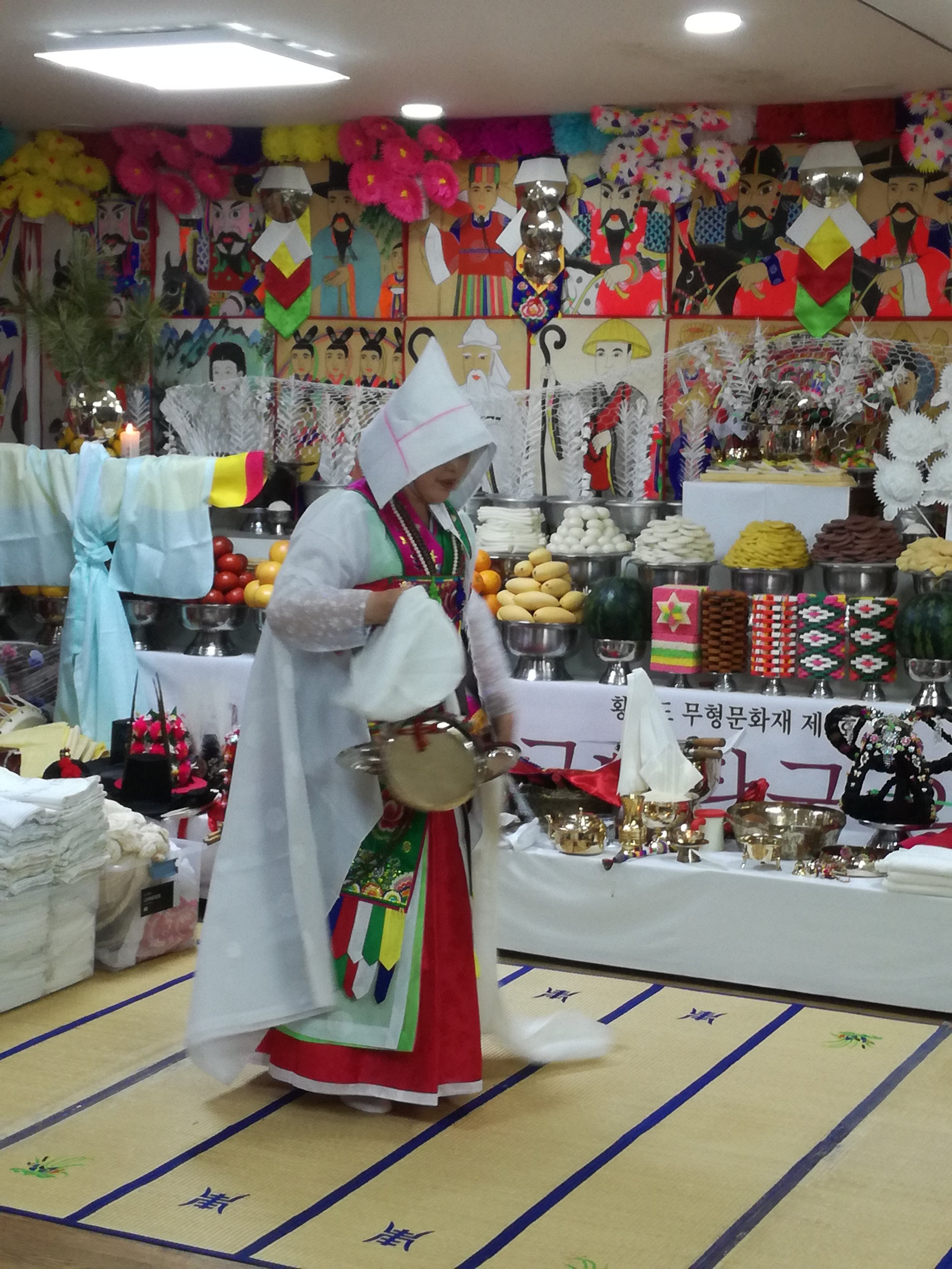
Folklore and Protection Policy: A South Korean Case. The Governmental Protection and Use of Korean Shamanism in years 1962-1988
Presented by Dominik Wróblewski, PhD, independent academic researcher.
This Zoom event will take place on Sept. 18th, 8:00-9:30AM (Los Angeles Time)/17:00PM (CET)/ 00:00AM (Seoul Time).
Please register here: https://us02web.zoom.us/meeting/register/tZIpdO-gpjorGt1qyjGUBGcmeRV2c4eMdJqv
Abstract
After liberation in 1945 and after the Korean War (1950-1953), South Korea found itself in a problematic situation. The government and the state itself had to face the struggle of reshaping and re-discovering its national identity. To achieve this aim, which seemed to be an almost impossible achievement, the authorities had to re-discover and re-create traditional Korean culture. During the Rhee Syng-man rule (1948-1960) and during the New Community Movement, established by Park Chung-hee in 1970s, South Korea experienced rapid modernization, urbanization and Westernization. Due to it, the state faced the import of new cultures, particularly from the United States. As a result, the government was made to take legal efforts to preserve and protect Korean cultural properties, including shamanism and other folk beliefs. In 1962, the South Korean government enacted the Cultural Property Protection Law (CPPL) as a part of a cultural protection and conservation policy. Under the CPPL, folklore, including shamanism, is authorized as an important intangible cultural property. Moreover, national performers, including shamans, receive financial support from the government and they are designated as the Living National Treasures – protectors of traditional Korean culture. Furthermore, the CPPL helps the South Korean government to use shamanism and other folk beliefs politically. In 1962-1988, the authorities used nationalism in a uniform of shamanism to legitimize its rule, to demonstrate a great historical and cultural legacy of Korea and to prove a uniqueness of Korean national identity. To achieve this aim, the government had to reshape the original context of shamanism for the purpose of institutionalization and politicization. In other words, the South Korean authorities covered its own actions in the disguise of shamanism which was rather a political strategy of promoting and representing cunning, deceptive and creative authority in terms of traditional, folkloristic and religious conditions. The study of this speech concentrates (briefly) on the 20th Century relationship between the South Korean government and shamanism, political use of folklore, the legislation of Cultural Property Protection Law and its effect on intangible items. The study also analyzes the recontextualization of shamanic performances, the folklore politics of reshaping, re-discovering and re-creating Korean traditions as national symbols.
About the Speaker
Dominik Wróblewski PhD, independent academic researcher
Studied at Faculty of Philology at the State School of Vocational Education, and the Department of Asian Studies, Faculty of International and Political Studies, University of Lodz. He was a scholar at the Academy of Korean Studies, Republic of Korea and participated in the 2018 AKS Program for Korean Studies. His major academic interests are: the politicization process of Korean religion and folklore, the governmental use of intangible and tangible cultural properties in South Korea, religious and cultural policy in East Asian countries, especially South and North Korea and Japan, connections between shamanism and the South Korean authorities, cultural differences and similarities between both Korean states and Japan, national identity and nationalism on the Korean Peninsula. His additional academic interests are: the Kim dynasty in the DPRK, inter-Korean relations, the Westernization process in South Korea, totalitarian and authoritarian regimes in East Asian region and the concept of utopia.
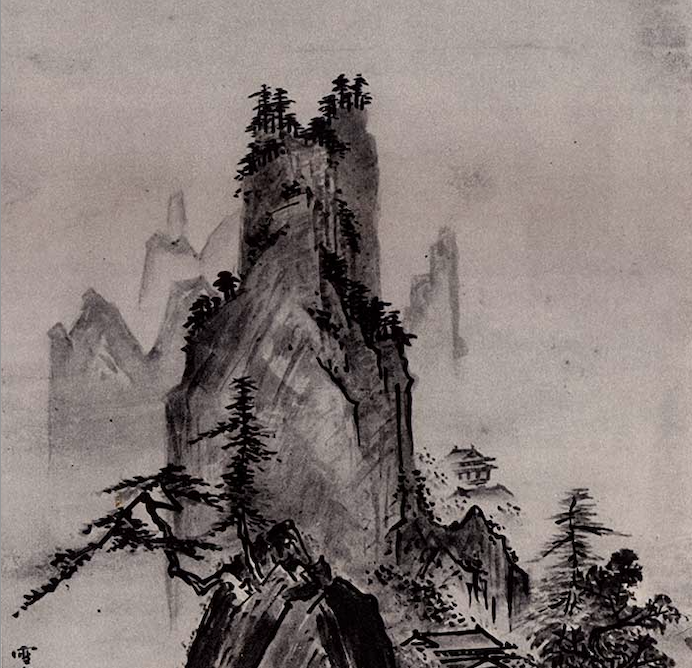
Thomas Conlan: Japanese and Joseon Relations during the period of Ōuchi Dominion: 1392-1551
Japanese and Joseon Relations during the period of Ōuchi Dominion: 1392-1551
Presented by Thomas Conlan, Professor in East Asian Studies and Professor of History, Princeton University.
This Zoom event will take place on May 8th, 5:00 - 6:30pm (Los Angeles Time) / May 9th, 09:00 - 10:30am (Seoul Time).
Please register here: https://us02web.zoom.us/meeting/register/tZcvf-GorzMpGdVOCWlenHIagFpbiZxwtLuV
Abstract
Japanese Korean relations were strong and durable in the fourteenth through early sixteenth centuries under the aegis of the Ōuchi, a family of Korean immigrants who gained power and influence in the western Japanese provinces of Suō and Nagato. The Ōuchi, who dominated western Japan through the mid-sixteenth century, gained much wealth and power through trade with Joseon in copper ore, and, later, silver. The Ōuchi family was unique in claiming ethnic descent from Joseon kings, and-remarkably for this time-such claims were recognized in both Joseon and Japan. Their position, coupled with dominance over strategic ports and mines, allowed them to facilitate trade throughout East and Southeast Asia. They also played a key cultural role in disseminating Confucian texts, Buddhist sutras, ink paintings, and pottery, and in creating a distinctive, hybrid culture that fused Japanese, Korean, and Chinese beliefs, objects, and customs.
Thomas Conlan will illustrate how Japan was an ethnically diverse state from the fourteenth through the sixteenth centuries, closely bound by trading ties to Korea and China. His talk will reveal new archaeological and textual evidence proving that East Asia had integrated trading networks long before the arrival of European explorers and includes an analysis of ores and slag that shows how mining techniques improved and propelled East Asian trade. The story of the Ōuchi rulers argues for the existence of a segmented polity, with one center located in Kyoto, and the other in the Ōuchi city of Yamaguchi. His talk will also contradicts the belief that Japan collapsed into centuries of turmoil and rather proves that Japan was a stable and prosperous trading state where rituals, policies, politics, and economics were interwoven and diverse.
Sesshū’s Sansuizu (山水図 雪舟, 1479). Inscriptions on top by two Joseon officials, Yi Son 李孫 and Bak Hyeongmun 朴衡文.
About the Speaker
Thomas Conlan, Professor of East Asian Studies and History, is interested in the political, social and intellectual transformations of Japan from the eleventh through the sixteenth centuries. Majoring in Japanese and History at the University of Michigan, he attended graduate school at Stanford University. Professor Conlan’s first published work, In Little Need of Divine Intervention: Scrolls of the Mongol Invasions of Japan, introduced an important picture scroll depicting the Mongol invasions of Japan. His next monograph, State of War: The Violent Order of Fourteenth Century Japan, based on his Ph.D. dissertation, revealed how warfare transformed the social, political, and intellectual matrix of fourteenth-century Japan. He then wrote a general history of the samurai, entitled Weapons and Fighting Techniques of the Samurai Warrior, 1200-1877, which was revised and reprinted as Samurai Warrior Weapons and Fighting Techniques. He also completed a translation of Samurai and the Warrior Culture of Japan: A Sourcebook 471-1877. In his From Sovereign to Symbol: An Age of Ritual Determinism in Fourteenth Century Japan, Professor Conlan analyzed the nature of political thought in medieval Japan. Finally in his most recent monograph, Kings in All but Name: The Lost History of Ōuchi Rule in Japan 1350-1569 (Oxford, 2024), Conlan provides a new understanding of premodern Japanese history, showing that it was a multiethnic state, economically based on mining and trade.

Gabor Sebo: Beyond Propaganda: Exploring New Visions and Evolution of North Korean Film Culture
Beyond Propaganda: Exploring New Visions and Evolution of North Korean Film Culture
Presented by Dr. Gabor Sebo, Visiting Research Fellow, Seoul National University.
The event will take place on April 17, 5:00 - 6:30pm Los Angeles Time / April 18, 09:00 - 10:30am (Seoul Time).
Please register here: https://us02web.zoom.us/meeting/register/tZcsfu2gqzwqGNDSHzLAGDYumilBrp873rSA
Abstract
North Korean cinema, showcased in both theaters and television broadcasts, has been deemed as an often misunderstood and enigmatic facet of world cinema since its inception, struggling to attain its rightful recognition on the global stage. Contrary to prevailing perceptions, North Korean films extend beyond mere ad nauseam didactic messages pertaining to the party, homeland, and leadership, instead featuring elements of entertainment that encompass a broad spectrum of content and form.
Dr. Gabor Sebo’s in-depth analysis uncovers a diverse range of focal points spanning different cinematic decades, in accordance with a rich array of film genres, thereby challenging the stereotypical misconception about the exclusively propagandistic nature of North Korean film imagery. To comprehensively interpret the heterogeneous cinematic and television productions of the Democratic People’s Republic of Korea (DPRK), a semiotic approach is indispensable, delving into the analysis of signs and symbols within their respective historical and political contexts.
While North Korean film remains marginalized in film critical discourses, it has garnered substantial popularity among domestic audiences, often recognized as some of the world’s most ardent film consumers. This dichotomy underscores the discrepancy between international perceptions of North Korean cinema and its reception within the country, offering a nuanced and multifaceted glimpse into the DPRK cultural plethora.
Sebo’s study endeavors to illuminate the cinematic landscape of the DPRK, demonstrating it as a visual source of popular entertainment. Through an exploration of the evolution of North Korean cinema, his talk aspires to offer an objective understanding of this underexplored and neglected cultural terrain.
About the Speaker
Dr. Gabor Sebo, a scholar specializing in North Korean Studies with a focus on Unification Policies, earned his Ph.D. from Korea University in 2018. In the academic year 2019/2020, he served as a Korea Foundation Postdoctoral Fellow at the University of Edinburgh, followed by a research stint at the Research Institution of Korean Studies (RIKS) at Korea University as a visiting scholar. During the academic year 2021/2022, he assumed the role of a university lecturer at Yonsei University, teaching four undergraduate courses. In 2023/2024, Dr. Sebo holds the position of a visiting research fellow at the Kyujanggak Institute for Korean Studies (KIKS) at Seoul National University (SNU). Currently, his scholarly focus centers on the composition of a monograph elucidating North Korean cinema.

Sol Jung: Order-made Korean Tea Bowls and the Transcultural Impact of Chosŏn Dynasty Art in Seventeenth Century Japan
Sol Jung, the Curator at the Smithsonian's National Museum of Asian Art, will speak about the transcultural impact of Chosŏn Dynasty (1392-1910) art in the early modern period. This event is open to the public.
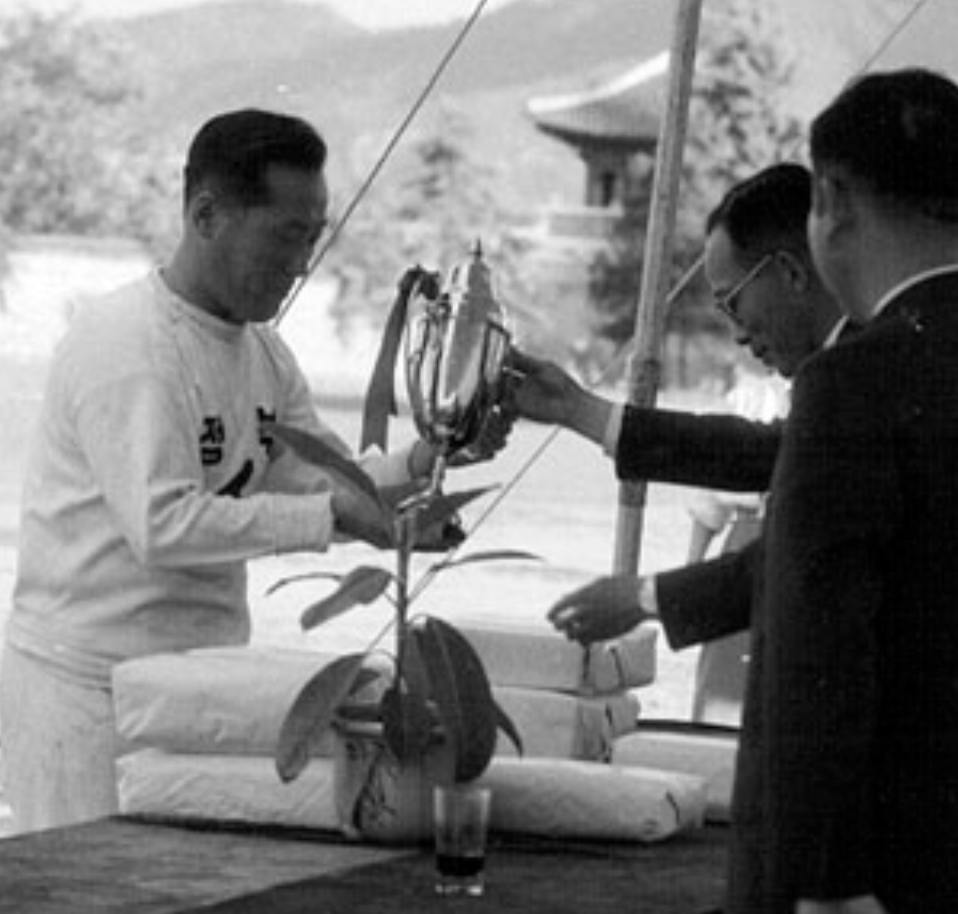
Calling an Audible on Civil Service Reform: Bureaucrats as State-builders under Syngman Rhee
Calling an Audible on Civil Service Reform: Bureaucrats as State-builders under Syngman Rhee
Presented by Dr. Rolf I. Siverson, Independent Scholar.
The event will take place on November 16, 5:00 - 6:30pm Los Angeles Time / November 17, 10:00 - 11:30am (Seoul Time).
Please register here: https://us02web.zoom.us/meeting/register/tZwkdumtpz0vHtDeYhOtlYgO4xg5Ixaq-Wx2
국무원사무국운동회1 (1959) National Archives of Korea CET0026231
Abstract
After the Korean War, bureaucrats in South Korea’s Office of General Affairs were faced with a dilemma. Despite being tasked with creating a democratic, efficient civil service and a set of laws and regulations inherited from the U.S. occupation, the political reality was ambivalent if not outright hostile to changing the status quo spoils system. Nonetheless, the institutional structures and norms of the Korean civil service had changed significantly by the end of the decade. This presentation explores how these career officials approached institutional reform from within. They pursued the project of modernizing the civil service utilizing creative strategies inspired by examples from past and present. In doing so, they demonstrated many of the very same characteristics they aimed to institutionalize within the state. By foregrounding the agency of career bureaucrats as state-builders, this presentation aims to reconsider the history of the South Korean state and recontextualize the expansion of administrative capacity in subsequent decades within a longer and more complex process of incremental transformation.
About the Speaker
Dr. Rolf I. Siverson is an independent scholar of modern Korean and Japanese history. He received a PhD in History from the University of Pennsylvania in 2021 where his research focused on civil administration in Manchukuo and its impact on state-building in South Korea. His interests include the history of the state, global and transnational political movements, and critical biography. His goal is to introduce Korean history and historical concepts to a wide audience. He is currently developing a multimedia project that explores postcolonial Korean society through the lens of crime reporting in occupied Seoul. He is also a mentor and advocate for historians working outside of academia.

Constructing Religion in Korea under Japanese and American Rule
Constructing Religion in Korea under Japanese and American Rule
Presented by John G. Grisafi, Yale University.
The event will take place on September 27, 9:00 am (Seoul Time), September 26, 5:00 pm (Los Angeles Time), September 26, 8:00 pm (New York Time).
Please register here: https://us02web.zoom.us/meeting/register/tZAqd-mrpz0pGNSL1hh-quEldql_A1nhS0ax
“Shūkyō Bunpuzu” [Religious Distribution Map], 1927. Source: 新興の朝鮮 : 附・統計図表及各種分布図 (Government-General in Korea, 1929).
Abstract
What is religion? To what does this word refer, and what is omitted from its definition? Who decides what goes into the category of religion and how, and what impacts do such decision have on how we understand religion? Is it possible to be neutral toward religion and simply let it be determined naturally? In the case of Korea, where the modern word for religion, chonggyo (宗敎), was coined in the 1880s, and which was under foreign rule for nearly four decades in the early twentieth century, outside empires had a profound influence on shaping religion as a concept and category. Based on my ongoing dissertation project, this talk discusses the policies and regulations on religion of the 1910–1945 Japanese Government-General in Korea and 1945–1948 United States Army Military Government in Korea. The emphasis is on the shaping effect that governance has on the notions and perceptions of religion, and on the reality experienced by religious persons and institutions. Both foreign empires played roles in the discursive construction of religion, religions, and religious in modern Korea. Each regime made decisions to prescribe norms regarding religion and establish boundaries around, between, and within religions. This study is an effort demonstrate first, how these foreign empires played an impactful role in shaping religion in modern Korea in accordance with their own objectives and views and, second, how such institution cannot take positions on religion without shaping religion, that neutrality toward religion is a logical impossibility.
Composite of US the lowering of the Japanese flag and subsequent raising of the US flag in Seoul, Korea, on 9 September 1945. Source: United States National Archives and Records Administration.
About the Speaker
John G. Grisafi is a PhD candidate in Religious Studies at Yale University. His interests are in Asian religions and philosophies, religious and secular modernity, and Korean history, with a research emphasis on discursive construction of religion and its impacts on society, politics, and epistemology. John’s dissertation project is on the legal and discursive construction of religion in Korea under Japanese colonial rule and US and Soviet military occupation. His other scholarship includes a study of the impacts of early pandemic discourse around Shincheonji and Covid in South Korea, published in Nova Religio in 2021. He previously earned a BA and MA in East Asian Languages & Civilizations from the University of Pennsylvania.
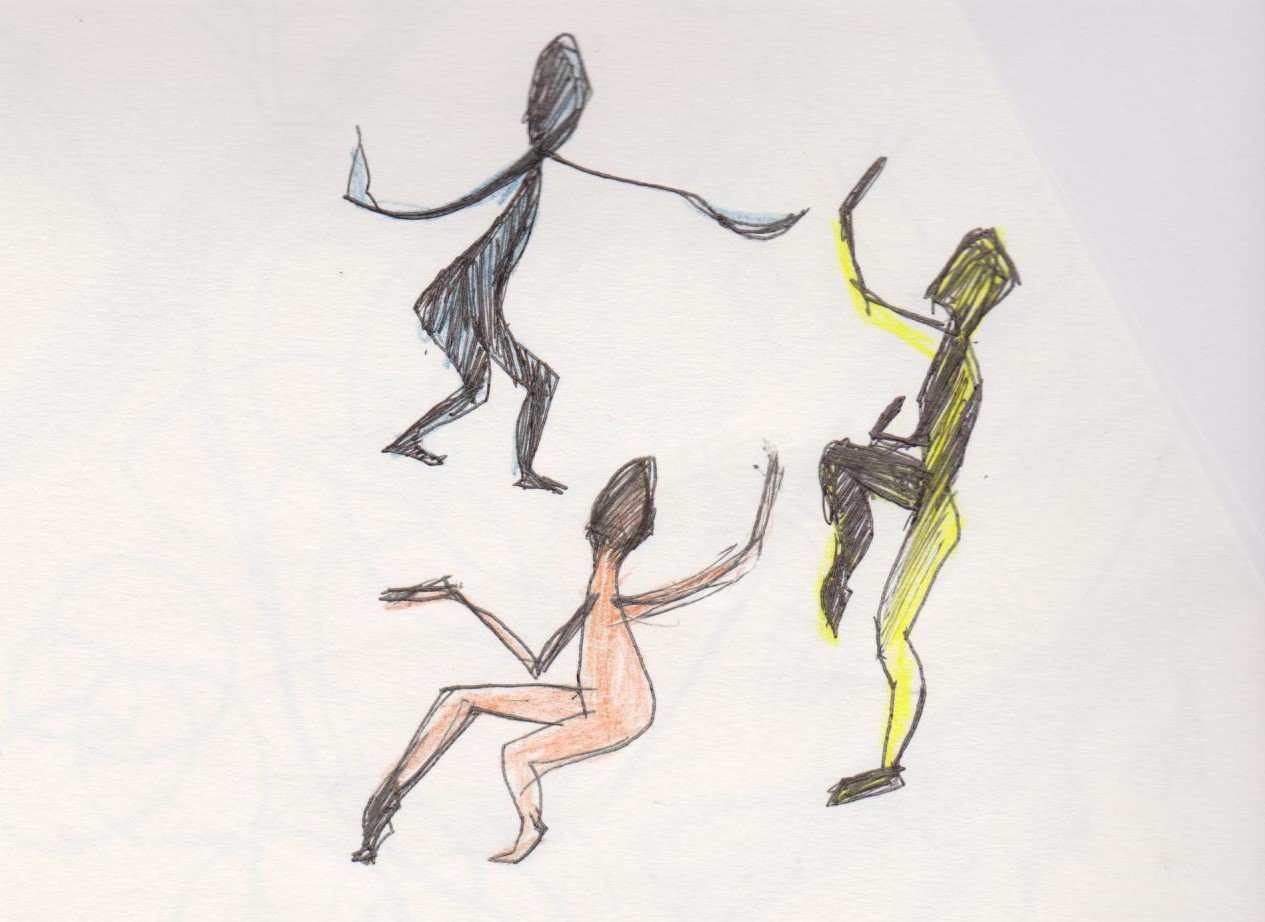
Ki Suryŏn as a Contemporary Phenomenon: New Age in South Korea?
Ki Suryŏn as a Contemporary Phenomenon: New Age in South Korea?
Focusing on GiCheon (氣天), one of the first ki suryŏn groups established in South Korea in the early 1970s, we will look at ki suryŏn as a contemporary urban practice, which, like Chinese qigong and Indian yoga, is reinvented in modernity based upon ancient Asian traditions, thousands years old.
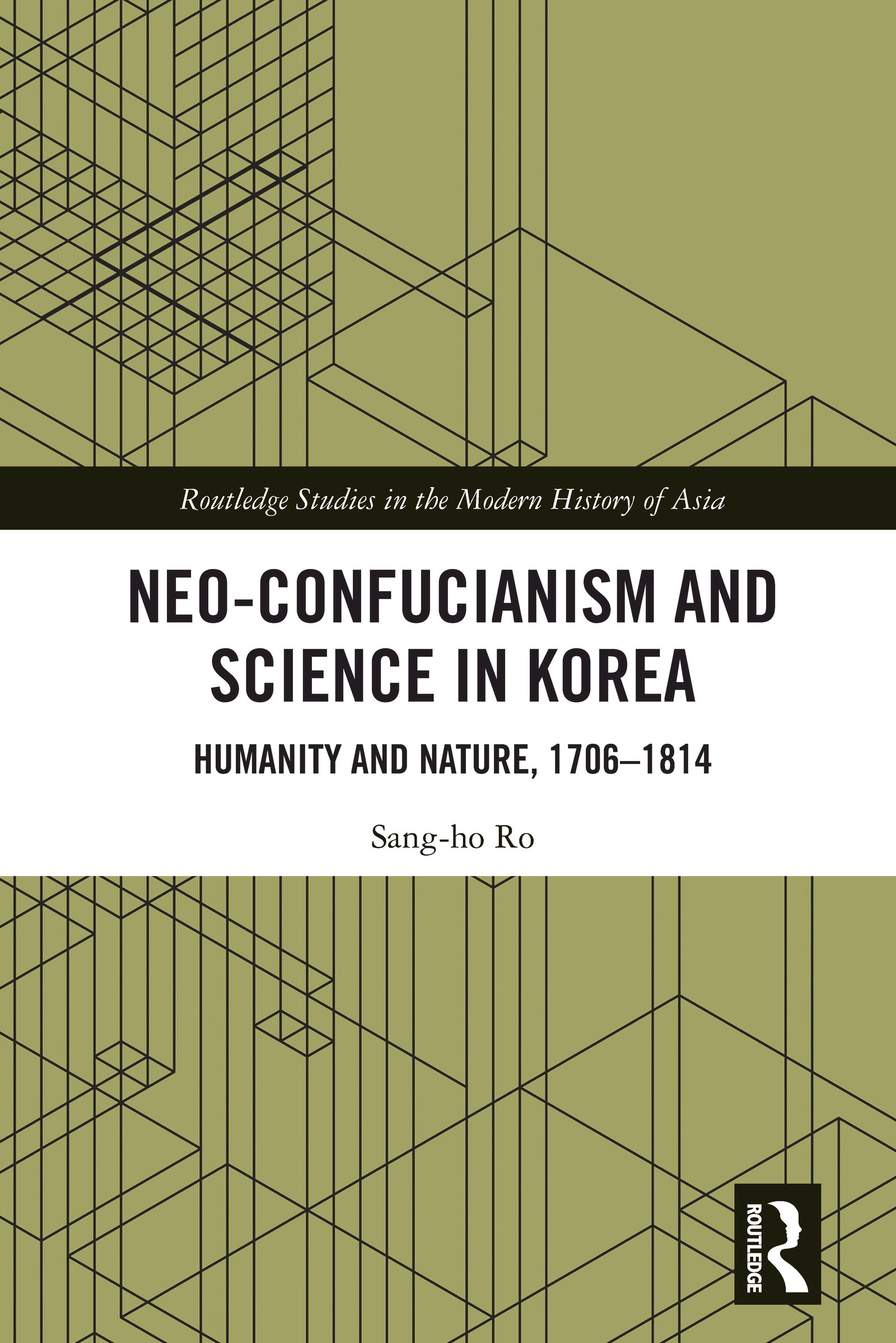
Sang-ho Ro: Neo-Confucianism and Science in Korea: Humanity and Nature, 1706-1814
Presented by Sang-ho Ro, Ewha Womans University
The event will take place on August 16, 09:00am Korea Standard Time / August 15, 5:00pm Los Angeles Time.
Individual Zoom link will be sent after registration: https://us02web.zoom.us/meeting/register/tZYtcOutrjMtHdQqo9MrKXyKSsibovQijfOW
Abstract:
Korean intelligence has a long and complex history. Given its location next to China, it had received significant influences from its continental neighbor. At the same time, Korean thinkers for many centuries had endeavored to find a way of reckoning their Self between the universal and the local. In my book, Neo-Confucianism and Science in Korea, I wanted to unveil how the long-lasting tension between two bipolar, the universal and the local in Korean mentality, made an intriguing turn in the eighteenth and early nineteenth centuries. By doing so, I attempted to explore Korean epistemology beyond the pre-existing horizons of Practical Learning (Sirhak) and Western Learning (Sŏhak). Instead, I reinterpreted the discourses and the methods of Korean intellectual society in terms of reason and sense experience. Neo-Confucian rationalism and Korean empiricism, in my opinion, may better describe their mentality at the dawn of the modern era.
Presenter:
Sang-ho Ro is an associate professor of Global Korean Studies at Ewha Womans University. Ro writes a history that examines the evolution of Korean intellectual tradition and philosophy in the late Chosŏn period and the twentieth century. His latest monograph is Neo-Confucianism and Science in Korea: Humanity and Nature, 1706-1814 (Routledge, 2021). In the book, he analyzes the intellectual dynamism that Neo-Confucianism and Western science brought in Korean epistemology. He highlights how Korean intellectuals in the eighteenth and nineteenth centuries reformed Neo-Confucian rationalism with a new method of empiricism. Also, he contributed to two edited books; Myongdong kilgori munhwasa (Han’gukhak chungang yon’guwon ch’ulp’anbu, 2019) in Korean and Kanryu Nichiryu (Bensei shuppan, 2014) in Japanese. In the books, he worked on inter-connectedness of Korea and her neighbors, China and Japan, in intellectual tradition and daily experience. And, his other articles cover broad topics, from the history of science and technology to the history of ethnic and cultural minorities in Korea. Ro earned his Ph. D. from Princeton University and M.A. and B.A. from Seoul National University.
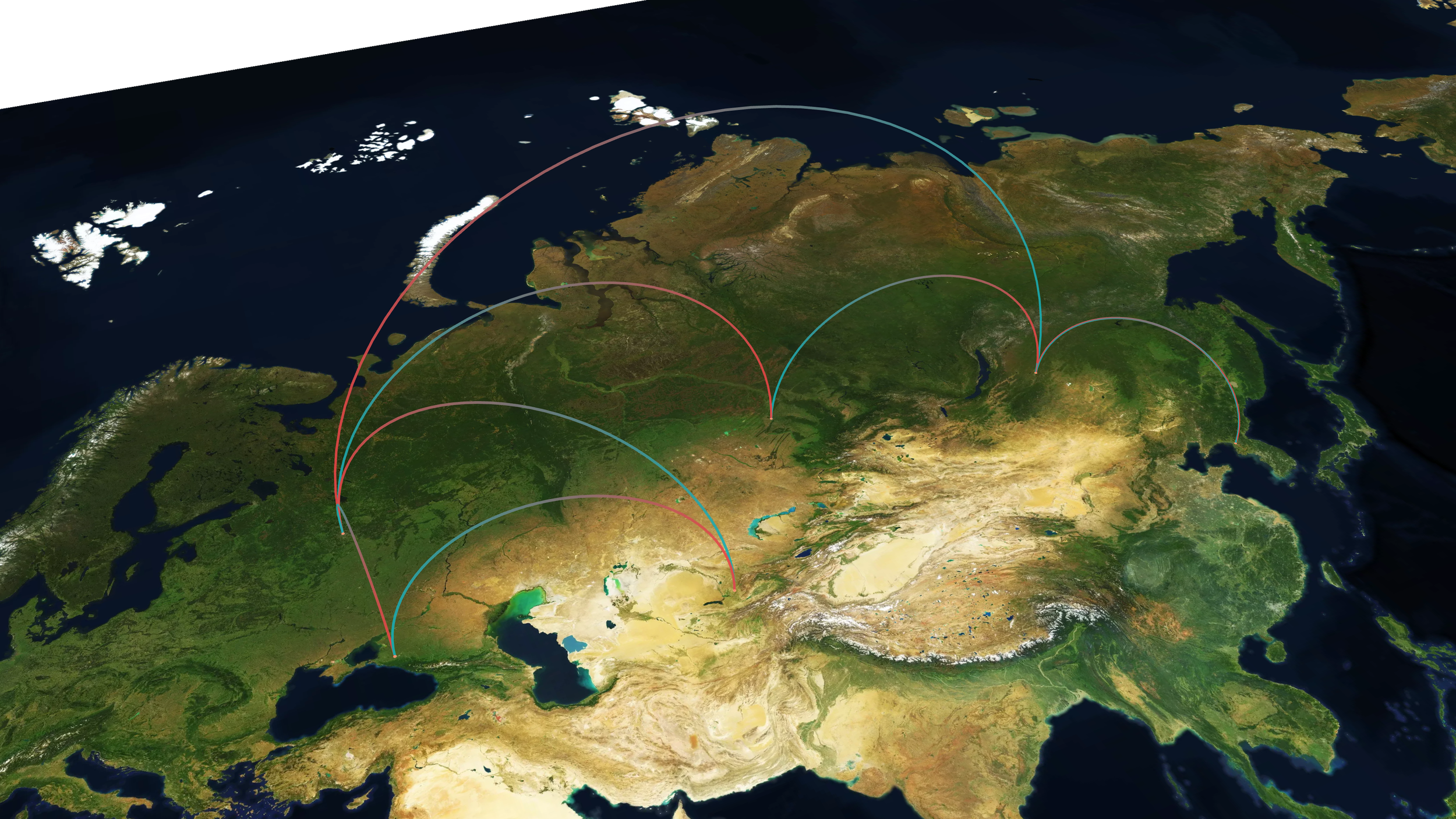
Balancing Expertise Development and State Expenditure in Postwar North Korea
Presented by Donghyun Woo, Korea Advanced Institute of Science and Technology (KAIST)
The event will take place at May 17, 9:00 am (Seoul Time), May 16, 5:00 pm (Los Angeles Time), May 16, 8:00 pm (New York Time)
Please register here: https://us02web.zoom.us/meeting/register/tZAkc-CvpzMtHtcDOYtWeod9lLOaZlma4AR4
Why did the Democratic People's Republic of Korea send its agricultural experts to Soviet breadbaskets, including Ukraine and Uzbekistan, in the post-Korean War 1950s? This presentation argues that Pyongyang's desire to balance expertise development and expenditure reduction enables us to efficiently challenge the prevailing narratives of North Korean history studies that view 1956 as the most important moment for Kim Il-sung's nationalistic Juche politics. By reconstructing the untold history of North Korea's Labor Hero An Tal-su and his fellow tourists in the Soviet Union, this presentation examines how bilateral programs of "scientific excursion" were organized and what different North Korean actors aimed to achieve in those rare opportunities, in a bid to show that neither ideology nor nationalism mattered that much in North Korean politics. This presentation also explores how to visualize relevant Russian data, partly to contribute to the growing academic field of digital history.
About the Presenter
Donghyun Woo is a historian who explores the entanglement of science, technology, environment, and medicine in the Cold War. He is interested in combining declassified archival data with digital history approaches. He has translated three academic monographs and co-translated three Russian material books. His articles appeared in The Historical Journal and The Korean Journal for the History of Science. He has presented in important venues, including the Los Alamos National Laboratory, the Woodrow Wilson Center, the University of Oslo, and SOAS University of London. One of his hobbies is tinkering with digital tools and programming languages.
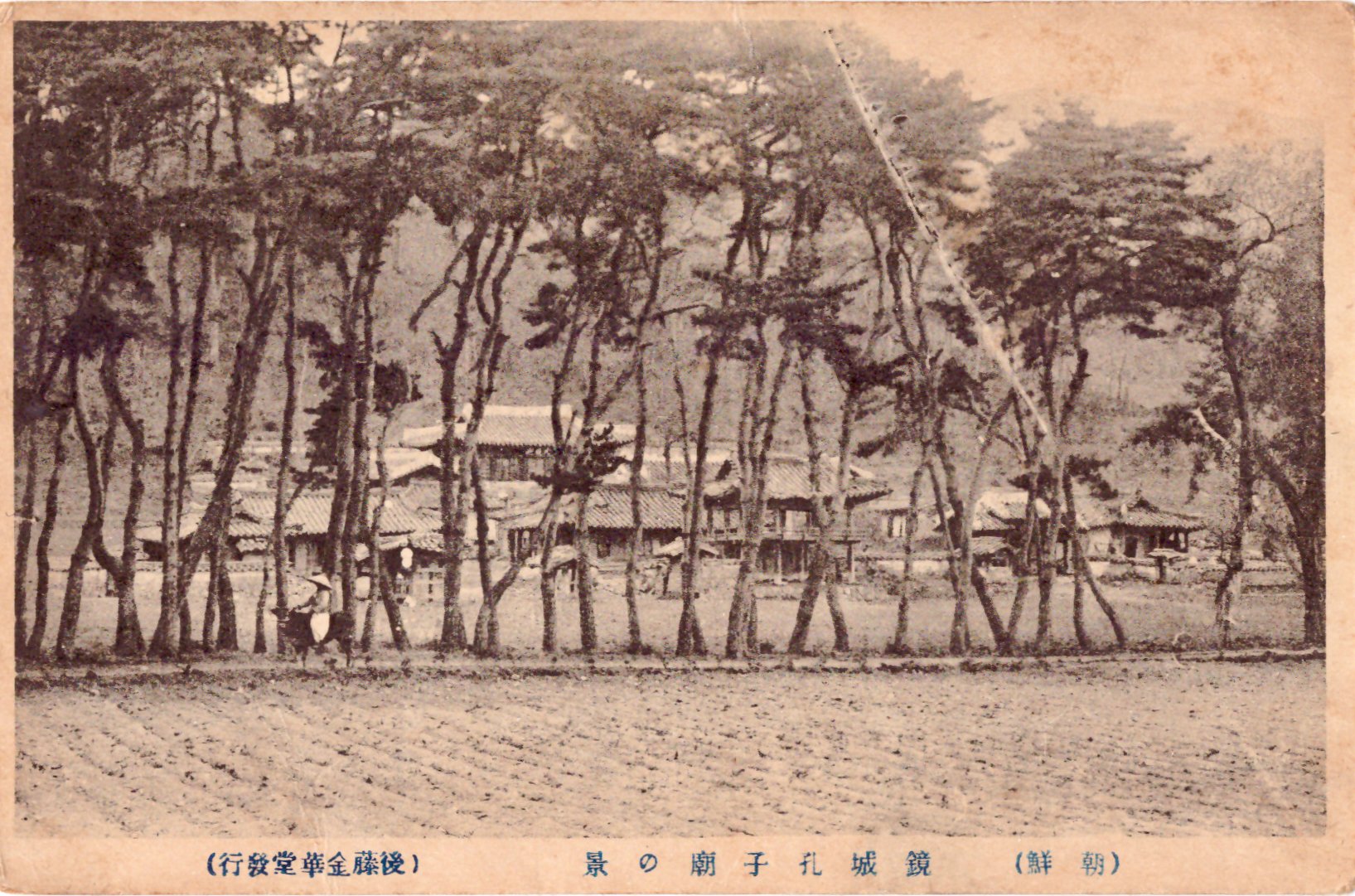
Martin Gehlmann: Student Evaluation Examinations in Chosŏn Local Schools
Student Evaluation Examinations in Chosŏn Local Schools
Presented by Martin Gehlmann, Ruhr University Bochum
The event will take place at 18:00 Central European Time/ 9:00 AM Los Angeles Time
Please register here: https://us02web.zoom.us/meeting/register/tZAocuCprz4oH90PbiETPC0TUWhKf1fG6HSF
The reform of the student evaluation examination (kyosaeng kogang 校生考講) at the beginning of the 17th century marks a break in the examination culture and educational history of Chosŏn Korea. In order to strengthen the underfunded military after the Japanese invasions of 1592, student evaluation examinations were adjusted to now punish failure by revoking student status and exemption from military taxes and obligations. This stood in stark contrast to the educational ideals promoted by the founders of the dynasty and incited strong opposition among students and scholar-officials. Resistance against the new exclusionary format of the examinations reveals not only a general understanding of examinations and their social role, but the ensuing negotiation between students and state over standards regarding scope and content of the exams offers insight about knowledge of students as well as knowledge assessment practices in Chosŏn Korea.
About the Presenter
Martin Gehlmann is a research and teaching assistant at the Department of Korean Studies at Ruhr-University Bochum (RUB). His research interests include East Asian educational history, institutional history in premodern Korea, Confucianism, and Confucian cultural heritage. Previously, he has worked as a research assistant at the Institute of Korean Studies and the Collaborative Research Center 980 “Episteme in Motion” at Freie Universität Berlin. He received his PhD in December 2020 for a thesis on Confucian Academies. He also is co-editor of the volume “Confucian Academies in East Asia” that was published in 2020 in the Brill book series “Science and Religion in East Asia.”
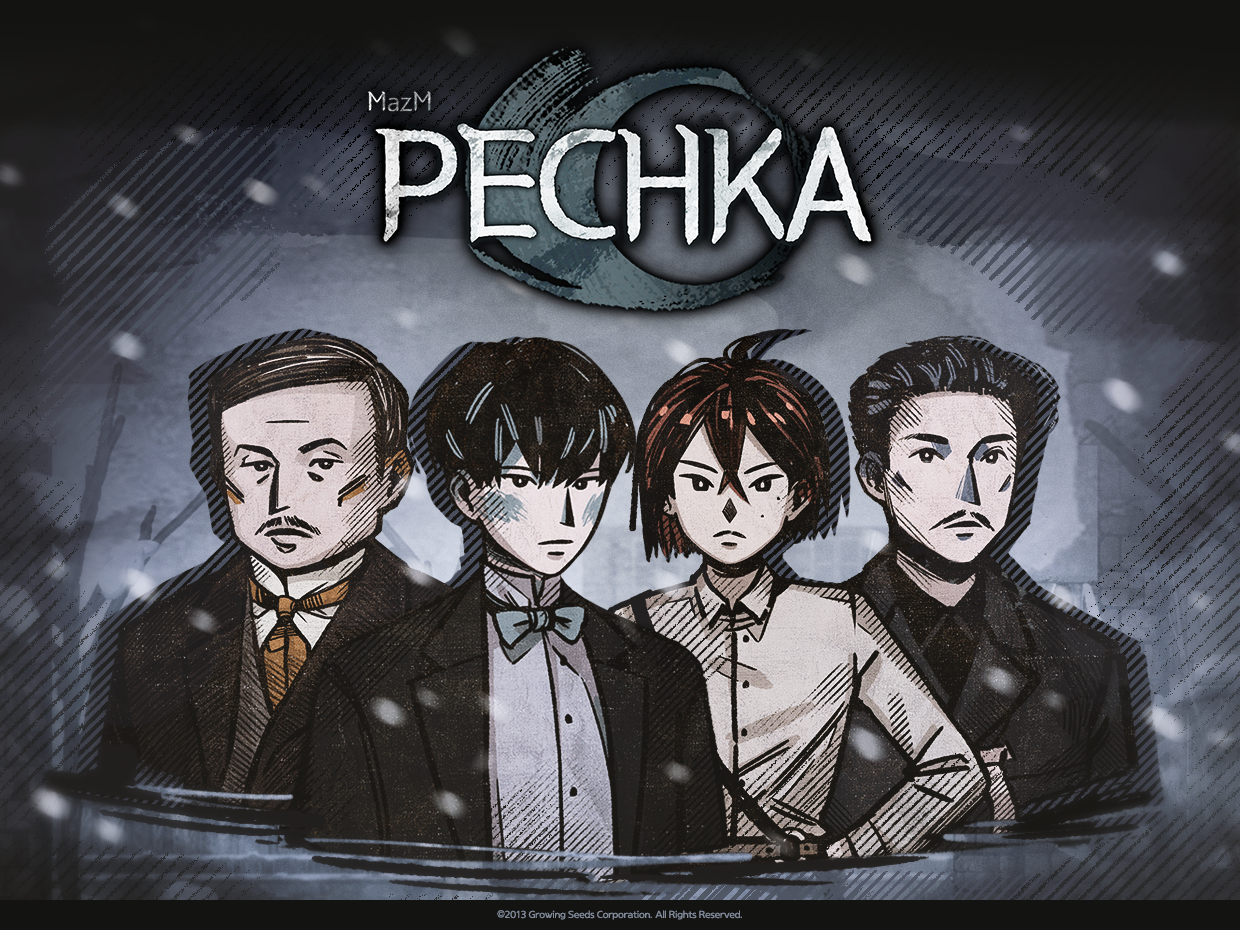
Pechka: A Game about the Korean Resistance in the Russian Far East
Pechka: A Korean Independence Story Adventure Set in the Russian Far East
A conversation with Growing Seeds studio/ MazM, the creators of the story adventure game Pechka
Webinar time: March 9th, 2023. 4:00 PM-6:00 PM, Los Angeles Time
Join us for a discussion about Pechka, a story adventure game created by MazM. With the game's creators, we will discuss the game's creative inspiration, the research process, and the significance of the choices the players make in the game. Set in the Russian Far East in the early-twentieth century, the game tells the story of Korea's struggle for independence from Japan through the eyes of virtual Korean youths who lived through the period. Beyond simply conveying historical knowledge, the game wants the player to experience the struggles of real people living in that era. The game's title is derived from "Pechka", the nickname of the Korean independence leader Choi Jae-Hyung featured in the game.
About Growing Seeds Corporation
Growing Seeds Corporation (자라나는 씨앗) is a studio that creates story games based on classic literature and history under the MazM brand. Since 2016, we have created fandom by making games with various classical literature such as "The Wizard of Oz," "Jekyll and Hyde," and "The Phantom of the Opera." In 2020, Korea's painful early 20th century history was depicted in a story game release, Pechka. MazM aims to impress and empathize with the younger generation by creating story games based on literature and history, the cultural assets of mankind.
Participants from Growing Seeds
Hyo Taek Kim
Founder/CEO, Director of Pechka Ex-Nexon Korea
Ji Young Kim
Game Designer, Scenario Writer for Pechka Background: BA in Content Media
Ji Soo Song
Scenario Writer, Pechka Background: Web novel writer
Yong Zae Kim
Expert supprorting Pechka's scenario writing Background: Hanyang University ERICA Campus, Ansan, Korea (Film History) Korean Academy of Film Arts, Seoul, Korea (M.F.A., Film Directing)
Joined by
Dr. Hee Jin Lee
Pony Chung Fellow and Research Professor at Korea University in Seoul. Scholar of Korean literature and culture.
Yee Rem Kim
PhD Student in Modern Korean History, UCLA
Sixiang Wang
Assistant Professor, UCLA
About the Games and Korean History Webinar Series
Sponsored by the Center for Korean Studies, UCLA
Co-sponsored by The Choson History Society
This webinar series brings together game creators, history teachers and scholars, and the gaming community through discussions over Korean history and its simulation. It views "gaming," whether as classroom simulations, board games, or digital media, as a form of historiography in its own right. Rather than approach history in games merely as "content," it considers the questions of position-taking, simulation, agency, and representation in games as powerful ways of engaging with Korea's past.
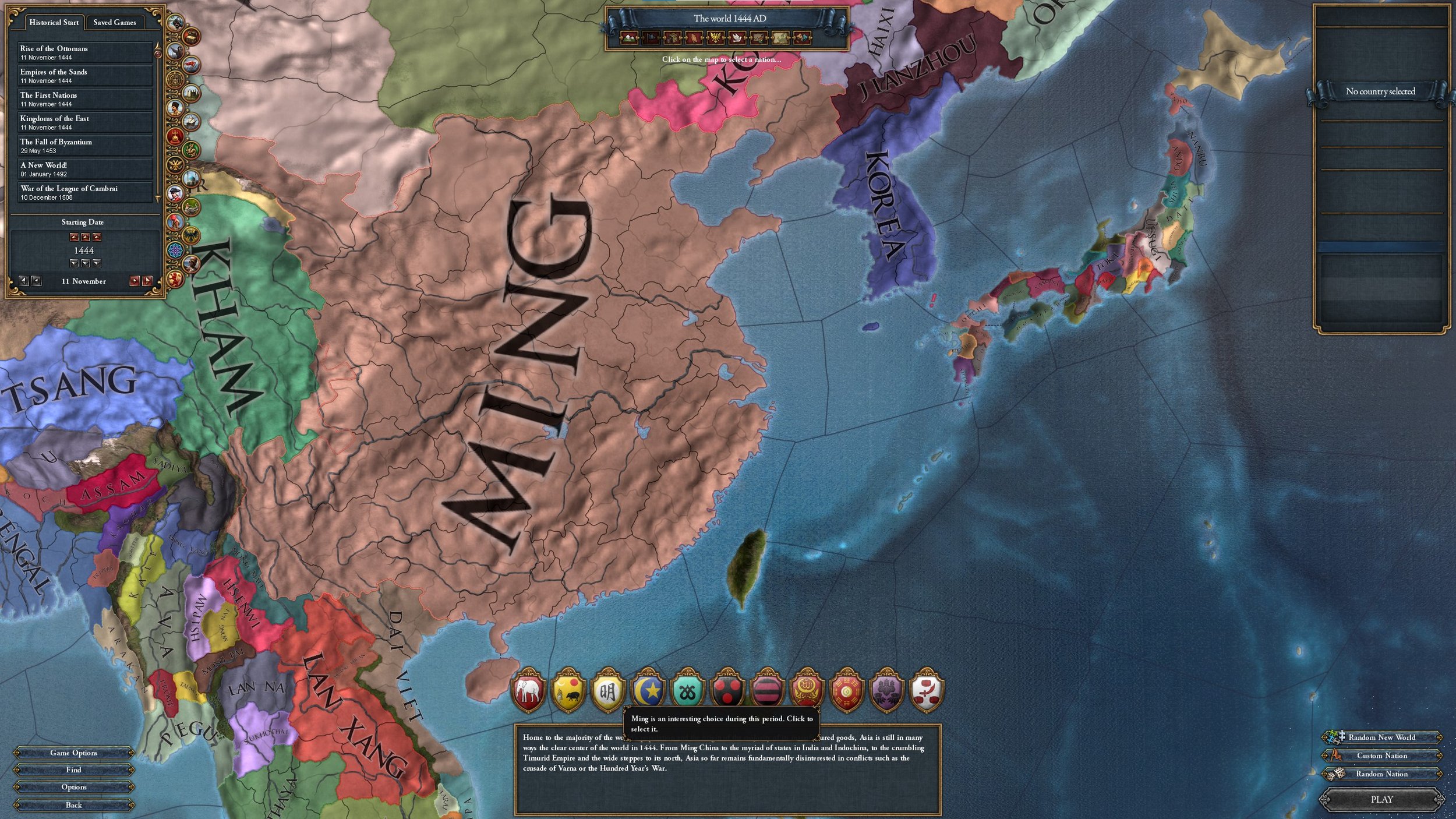
Simulating Korea in Early Modern Diplomacy: On Eurocentrism, Agency, and Early Modern World History in *Europa Universalis IV*
Games and Korean History Webinar Series
Simulating Korea in Early Modern Diplomacy: On Eurocentrism, Agency, and Early Modern World History in Europa Universalis IV
A conversation with Dr. Álvaro Sanz from Paradox Tinto Studios
Co-sponsored by UCLA Center for Korean Studies and CMRS-Center for Early Global Studies
Webinar: March 2nd, 2023 @ 12:30 PM–2:30 PM
Dr. Álvaro Sanz from Paradox Tinto Studios, joined by Sixiang Wang (UCLA), will discuss how the award-winning computer game, Europa Universalis IV (2013–present), have approached the simulation of Korean history and East Asian diplomatic institutions during the game's development. They will discuss a range of topics including: how Paradox Studios conducts historical research, how the game tries to model historical agency through player choices in the game, how the game addresses the challenge of representing diplomatic institutions that fall outside of modern "nation-state" conventions. We will also address the ethics of simulation: what does it mean when a player can be a king, colonizer, or empire builder; the theoretical implications of "what if" histories; and how the game developers have managed the problem of Eurocentrism, especially in its representation of Korea and East Asia. The discussion between the panelists will be followed by an open Q&A period.
About the speakers
Dr. Álvaro Sanz
Dr. Álvaro Sanz has been Content Design Coordinator at Paradox Tinto since 2022, a video game studio that he joined as Content Designer in 2021. Since then he has been part of the team that manages the historical grand strategy game Europa Universalis IV, having been part of the development of the content packs Origins (focused on Sub-Saharan Africa, as Content Designer), and Lions of the North (focused on Scandinavia and the Baltic region, as Content Design Coordinator). Previously, he had developed an academic career as a scholar specializing in the Iberian Middle Ages. He completed a Ph.D. at the University of Valladolid, Spain, in 2020, his research topic being 'The royal towns and the territorial administration in Castile and Leon. Power and society in the reign of Alfonso X (1252-1284)'. During his Ph.D. he published 8 papers, read more than 20 presentations at different conferences in Spain, Portugal, and the United Kingdom, visited the University of Cambridge, UK, as a doctoral student, and taught different courses and seminars at the University of Valladolid, his alma mater.'
Dr. Sixiang Wang
Sixiang Wang is an Assistant Professor of Asian Languages and Cultures at UCLA. He is a historian of Chosŏn Korea and early modern East Asia. His research interests also include comparative perspectives on early modern empires, the history of science and knowledge, and issues of language and writing in Korea's cultural and political history. He teaches courses in Korea's pre-nineteenth-century history as well as the history of cultural and intellectual interactions in early modern East Asia.
His book, Boundless Winds of Empire: Rhetoric and Ritual in Early Chosŏn Diplomacy with Ming China (https://cup.columbia.edu/book/boundless-winds-of-empire/9780231556019) reconstructs the cultural strategies of Korean diplomacy with Ming empire in the fifteenth and sixteenth centuries. It underscores how Korean ritual and literary practices inserted Chosŏn into the Ming empire’s legitimating strategies and established Korea as a stakeholder in a shared imperial tradition. He is also helping curate the UCLA Korean History and Culture Digital Museum with his students (https://koreanhistory.humspace.ucla.edu/)
Sixiang Wang received his PhD in East Asian Languages and Cultures from Columbia University.
About Paradox Interactive
Paradox Interactive is a video game company founded in Sweden in 1999, best known for releasing historically themed strategy video games, especially of the grand strategy games genre. Paradox Tinto is one of its newest development studios, founded Barcelona, Spain in 2020 under the leadership of Johan Andersson, a 25-year veteran of Paradox Development Studio and original creator of the Europa Universalis video game franchise, Paradox’s iconic grand strategy game and one of its main IPs. Europa Universalis IV is the fourth game of this widely acclaimed saga, published in 2013, and under continuous development for more than 9 years. It is a strategy game where players can control a nation from the Late Middle Ages through the Early Modern period (1444–1821), conducting trade, administration, diplomacy, colonization, and warfare.
About the Games and Korean History webinar series
Hosted by the UCLA Center for Korean Studies, this webinar series brings together game creators, history teachers and scholars, and the gaming community through discussions over Korean history and its simulation. It views "gaming," whether as classroom simulations, board games, or digital media, as a form of historiography in its own right. Rather than approach history in games merely as "content," it considers the questions of position-taking, simulation, agency, and representation in games as powerful ways of engaging with Korea's past.
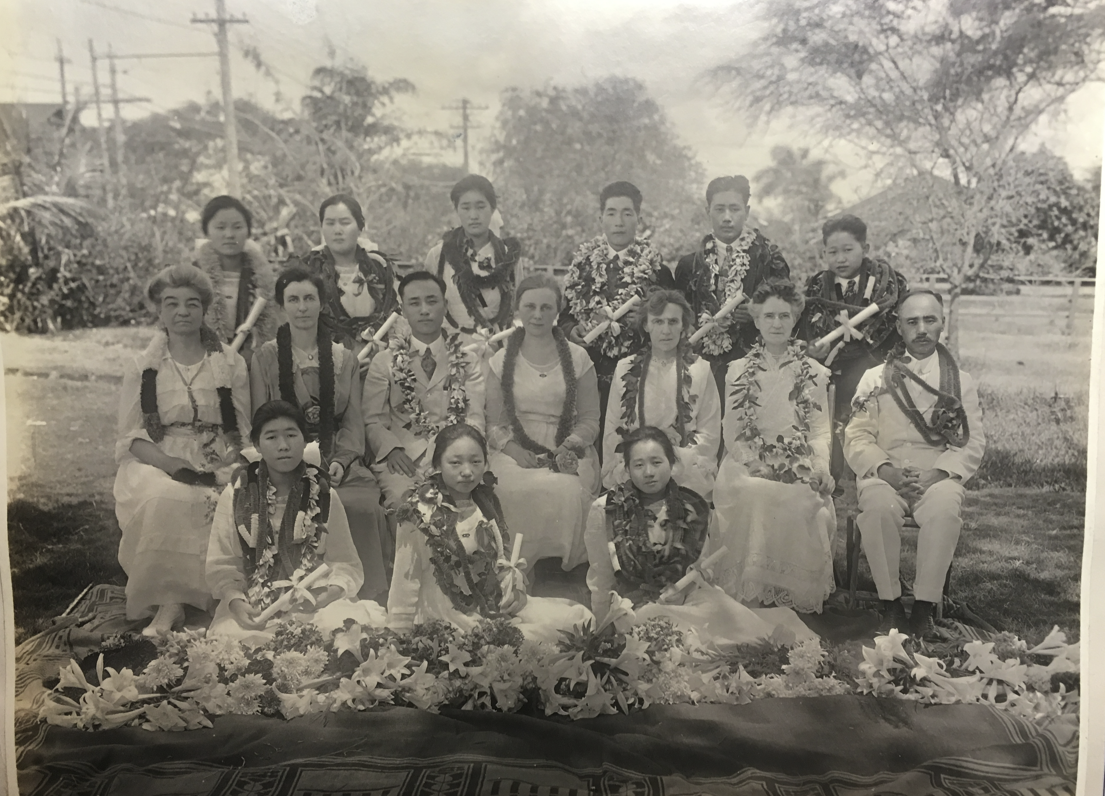
Jisoo Hyun: Education at the Crossroads of Trans-Pacific U.S. and Japanese Imperialisms: Korean Schooling in Territorial Hawaii, 1906–1940
Education at the Crossroads of Trans-Pacific U.S. and Japanese Imperialisms: Korean Schooling in Territorial Hawaii, 1906–1940
Presented by Jisoo Hyun (she/her), University of Washington
Date/Time: December 8, 2022. 4:00 PM-5:30 PM (Seattle, PST) / 7:00 PM-8:30PM (New York, EST)/ December 9, 9:00 AM—10:30 AM (Seoul, KST)
Please register in advance for this meeting.
After registering, you will receive a confirmation email containing information about joining the meeting.
Abstract
U.S. territorial Hawaii (1898–1959) was a highly contested site of engagement for immigrant Koreans. There, they encountered not only White Euro-Americans’ colonialist impulse for Americanization and the racial and economic subjugation of “Oriental” immigrants by a powerful and privileged haole (white) class, but also the strong nationalistic desire of Korean expatriates to liberate Korea from Japanese colonial rule. In this context of trans-Pacific U.S./Japanese imperial entanglement, Korean immigrants defied the status quo to develop and practice their own conception of a “proper” education. Drawing upon the cases of the first two Korean private schools in pre-statehood Hawaii and examining the stakeholders therein, this talk demonstrates the ways in which such educational institutions, established and run by Korean immigrants whose lives were enmeshed in the US/Japanese imperial projects, functioned as sites of negotiation for the meanings and methods of agency, nationalism, and citizenship. It argues that Korean-immigrant educators offered a distinctive brand of Americanization and civic education—one that emerged from a desire to establish Korean national sovereignty, promote ethnic nationalism, and create cultural differentiation, all while trying to emulate and assimilate into Protestant America. The stories of the two Korean schools and their politics of education offer a glimpse of the complex immigrant world that developed in relation to hegemonic forces of imperialism, nationalism, religion, race, and ethnicity while revealing a novel form of modern subjectivity that was called into existence within this specific historical and regional setting.
About the Presenter
Jisoo Hyun is a Ph.D. candidate in the History of Education program at the University of Washington. Her dissertation project on which the talk is based received the 2020 National Academy of Education (NAEd)/Spencer Dissertation Fellowship. She holds an M.A. in East Asian Languages and Cultures from Columbia University. Prior to beginning her doctoral studies, she worked as a researcher at the Institute for Modern Korean Studies in Seoul. There, she encountered the archives of two Korean private schools in Hawaii: the Korean Central School (1906–1919) and the Korean Christian Institute (1915–1940). The stacks of yellowing school records and photos—smiling Korean immigrant kids, Anglo-American and Korean teachers, lush Hawaiian palm trees—fascinated her, and led her to explore further. She found little documentation of the schools in either Korean or American historiographies and ultimately decided to devote her doctoral dissertation to them. Her study focuses on the schooling experience of Korean immigrants in territorial Hawaii (1898–1959) and poses new questions about its substance and significance, not only in relation to the American imperial project but also within the context of the competing imperialisms of the United States and Japan during the first half of the twentieth century. Informed by the growing body of work on imperial education and education for global citizenship, her study aims to enrich our knowledge of the junctures between education and imperial projects.
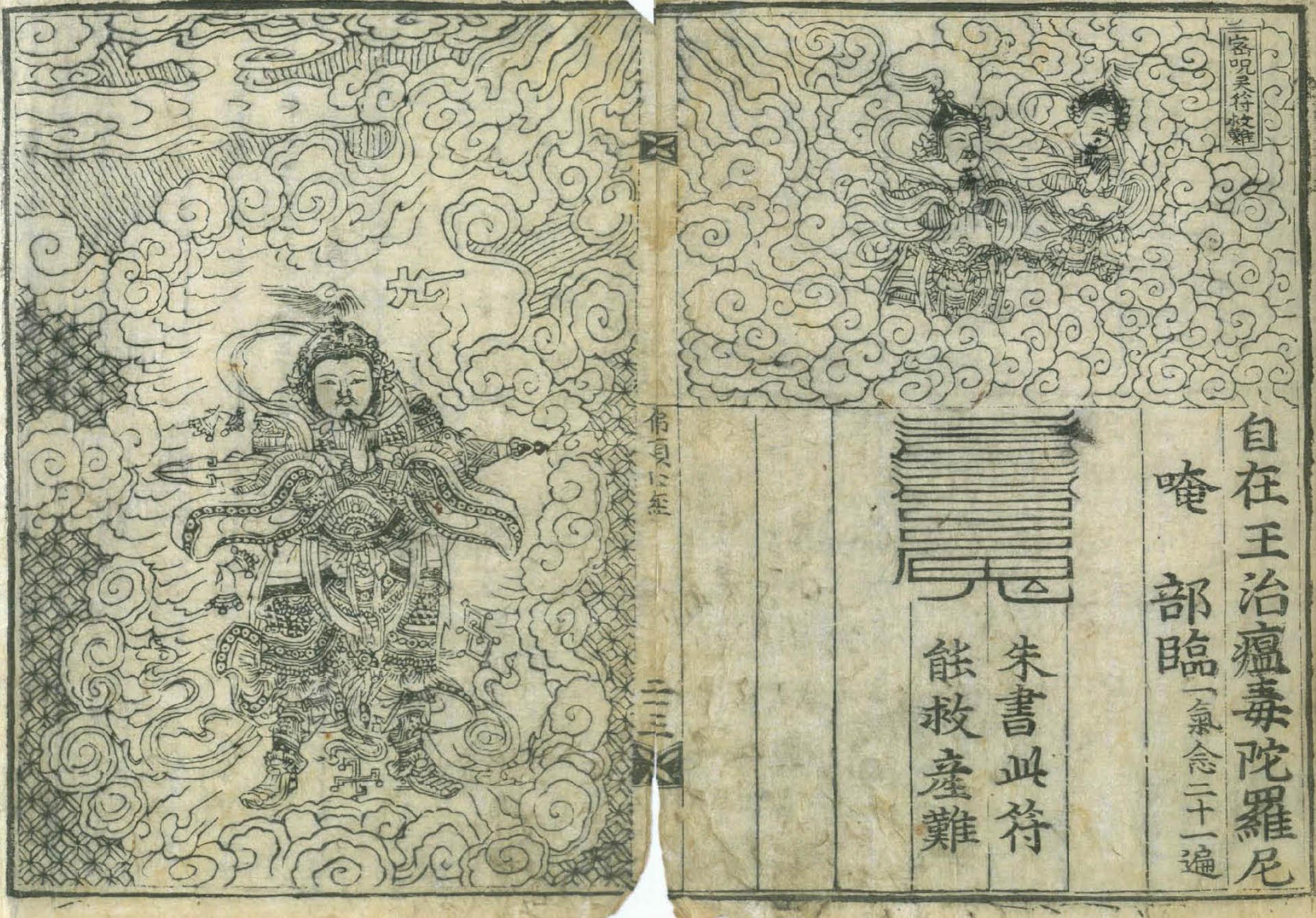
Sujung Kim: Sacred Signs and Safe Labor: Safe Childbirth Talismans in Chosŏn Korea
Sacred Signs and Safe Labor: Safe Childbirth Talismans in Chosŏn Korea
Presented by Sujung Kim, DePauw University
Date: November 17th, 2022. 9:00 AM-10:30 AM (New York, EST)/ 11:00 PM—00:30 AM (Seoul) / 2:00 PM-3:30 PM (London)
Please register in advance for this meeting.
After registering, you will receive a confirmation email containing information about joining the meeting.
Difficult childbirth is one of the first and the most frequently occurring issues in the healing discourses preserved within the Buddhist tradition. Among various ways to facilitate safe parturition, along with incantations a talisman was often used as a therapeutic method from very early on in East Asian Buddhism. Among the long-standing tradition of healing talismans, this talk attends to the case of a safe childbirth talisman popularized during the Chosŏn (1392–1910) period in Korean Buddhism. By focusing on a safe childbirth talisman found at the end of the Great Dharani of the Buddha’s Uṣṇīṣa [Crown] Heart of Avalokiteśvara Bodhisattva (Kr. Pulchŏngsim kwanseŭm tae tarani佛頂心觀世音菩薩大陀羅尼), the talk demonstrates how talismanic treatment—interwoven with traditional Buddhist healing methods and Chinese medical knowledge—dealt with the dangers and difficulties of childbirth and how “ritual healing” was perceived, processed, and negotiated in Chosŏn Buddhism, as well as the Chosŏn society at large.
About the Presenter
Sujung KIM is associate professor of religious studies at DePauw University. She received her Ph.D. in East Asian Languages and Cultures from Columbia University in 2014 and her M.A. in Buddhist Philosophy from Korea University in 2007. Sujung joined the DePauw faculty in 2014 and since then she has taught a wide range of courses on Buddhism and East Asian religions. While her research primarily centers on the premodern transcultural interactions between Japanese and Korean religions, her interdisciplinary research interests also include modern/contemporary Korean Buddhism. Her first book, Shinra Myojin and Buddhist Networks of the East Asian “Mediterranean” (University of Hawai‘i Press, 2019) focuses on a deity called Shinra Myōjin. The book explains that Shinra Myojin is not only an influential protector god of the Onjōji temple in Japan, but also part of the transnational network of people, ideas, and gods, spanning China, Korea, and Japan. Currently, Sujung is working on her second book project tentatively titled, Korean Magical Medicine: Buddhist Healing Talismans in Chosŏn Korea, which she investigates the religious, historical, and iconographic dimensions of healing talismans produced in Buddhist settings during the Chosŏn period. Although its primary focus is Buddhist healing talismans in Chosŏn Korea, the book also locates itself in the broader East Asian context, aiming at showing the complex web of talismanic culture in East Asia. This book project is supported by ACLS/Robert H.N. Ho Family Foundation (AY 2021–2022).
Jack Davey and Sora Kim: Publishing Korean Studies Research in English-language Journals
Jack Davey and Sora Kim: Publishing Korean Studies research in English-language Journals
한국학 분야 영문 학술지 투고 및 편집 설명회
Presented by Jack Davey, Managing Editor, Journal of Korean Studies
Joined by Sora Kim, Curator & Researcher, Kyujanggak Institute for Korean Studies, Seoul National University
Date: October 14th, 2022. 8:00 AM-10:00 AM (New York, EST)/ 9:00 PM—11:00 PM (Seoul) / 5:00 AM-7:00 AM (Los Angeles)
Register in advance for this meeting
After registering, you will receive a confirmation email containing information about joining the meeting.
What is it like to publish Korean studies in a leading English-language journal? Please join us for a panel discussion with Jack Davey, currently the managing editor of the Journal of Korean Studies (JKS), the leading peer-reviewed academic journal covering Korean studies in North America (ISSN: 0731–1613; https://www.dukeupress.edu/journal-of-korean-studies) and Sora Kim, curator and researcher at the Kyujanggak Institute for Korean Studies, as they relate their experience working to publish scholarship produced by Korea-based scholars in English-language journals. The discussion will be of particular interest to scholars used to writing for Korea-language publications who are seeking to publish their work in English-language publications.
한국학 분야의 가장 권위 있는 학술지 중 하나인 The Journal of Korean Korean Studies의 Managing Editor인 Jack Davey 박사와 서울대학교 규장각한국학연구원 학예연구사 김소라 박사를 모시고 영문 한국학 학술지에 투고하는 방법과 편집부의 작업 과정에 대한 설명을 진행합니다. 한국학 전공자는 물론, 영문 학술지 투고에 관심이 있으신 분들의 많은 참석 부탁드립니다. 사전등록링크 (Registration)를 통해 참가신청을 해주시면 Zoom 접속링크를 보내드립니다. (본 특강은 영어로 진행되는 온라인 행사입니다.)
제목: <한국학 분야 영문 학술지 투고 및 편집 설명회>
일시: 2022년 10월 14일 금요일 9:00pm (한국시각)
발표자: Dr. Jack Davey (The Journal of Korean Studies, Managing Editor)
사회: 김소라 (서울대학교 규장각 한국학연구원, 학예연구사)
Among the topics to be covered are
roles and rights of editorial boards
the submission process
peer-review process
norms and expectations among different kinds of journals
how to find a proper “foreign” journal
common challenges faced by Korean scholars when trying to publish in English
potential strategies for addressing these challenges
About the Speakers
Jack Davey (Ph.D. UCLA) is an archaeologist and Early Koreanist specializing in the Iron Age of peripheral East Asia and the early states of Proto-Three Kingdoms Period Korea. Since 2020, he has been the Managing Editor of The Journal of Korean Studies where he seeks to foster interesting, interdisciplinary scholarship that challenges how we understand Korea as an analytic category. In addition to the journal, he is an adjunct faculty member at George Washington University and co-leads the Early Korea Cultures Center.
Sora Kim (Ph.D. Seoul National University 2021) is a Koreanist who explores the socio-economic history of Joseon Dynasty. She specialized in land taxation mechanisms and principles in the late Joseon Dynasty with digital humanities methodologies. She has published several articles on Korean history both in Korean and international journals. She is currently working as a curator & researcher (학예연구사) at the Kyujanggak Institute for Korean Studies, Seoul National University.

Gowoon Seong: Hakata merchants and the distribution of ceramics in Northeast Asia in the 15th-16th centuries
Hakata merchants served an essential role in the circulation in Northeast Asia of Ming ceramics and Chosŏn ceramics in the 15th to 16th centuries. In scholarship on the Chinese ceramic trade, Ryukyu islanders have received significant attention. However, Ryukyu islanders were more involved in Southeast Asia trading deeper than in Northeast Asia. Investigating the role of Hakata merchants provides a more profound understanding not only of ceramic trading in Northeast Asia but as well as of its changing value in different cultures. This presentation will use a combination of historical documents and excavated materials to examine three different roles of Hakata merchants in the ceramic trade.
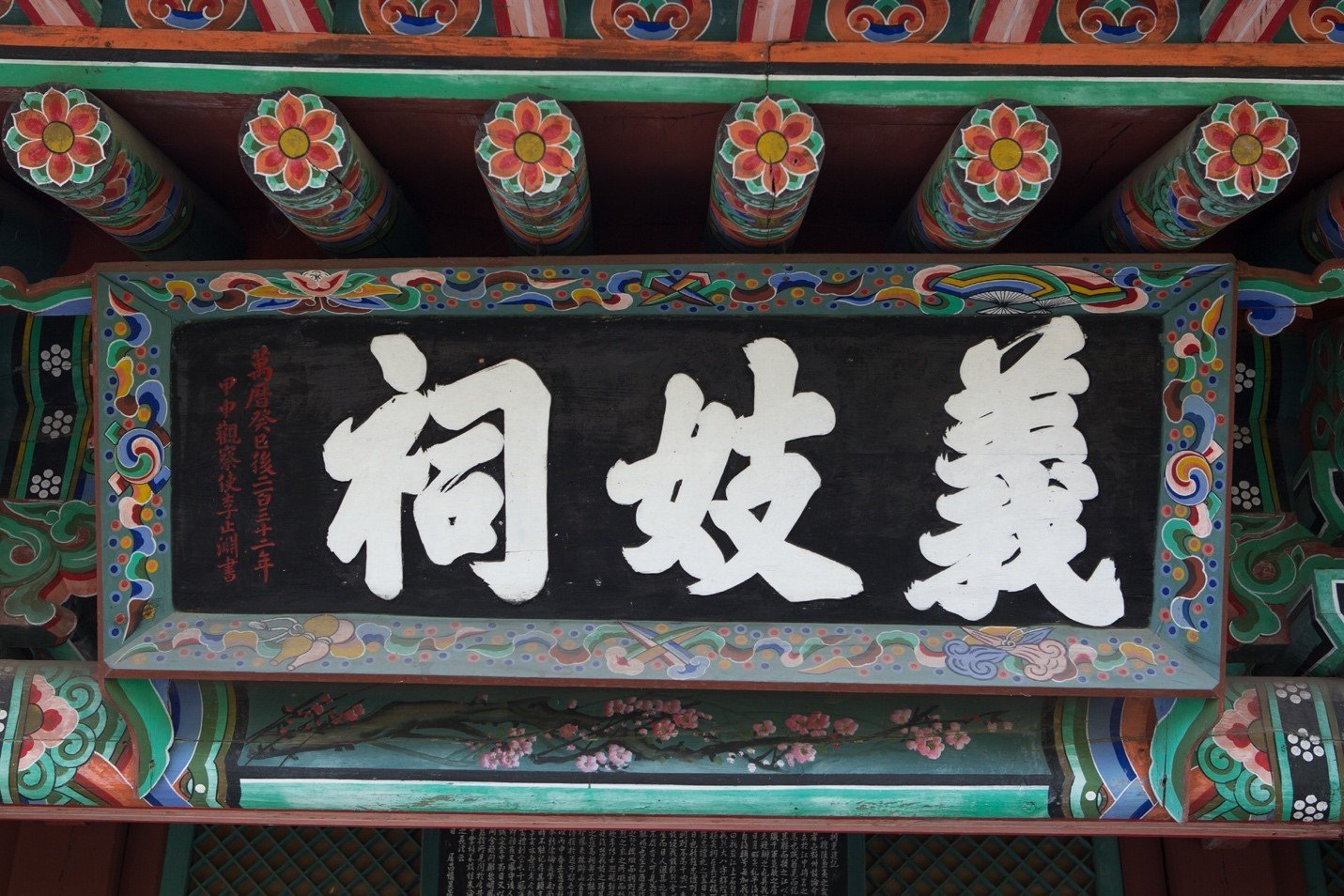
From Yŏllyŏ (烈女) to Female Marshal Heroes: the Changing subjecthood of Neo-Confucianist Moral Agency in Late Chosŏn Korea
Songhee Lee: From Yŏllyŏ (烈女) to Female Marshal Heroes: the Changing subjecthood of Neo-Confucianist Moral Agency in Late Chosŏn Korea
Presented by Dr. Lee Songhee, Research Professor, the Outreach Center for Korean Linguistic, Literary, and Culture Studies, Korea University
Date: March 2, 2022 Wednesday, 4:00pm (Los Angeles) / March 2, Wednesday, 7:00pm (Boston) / March 3, Thursday, 00:00am (Paris) / March 3, Thursday, 9:00am (Seoul)
Register in advance for this meeting:
After registering, you will receive a confirmation email containing information about joining the meeting.
The patriarchal system of late Chosŏn society is held responsible for the oppression of Korean women, culminating in the trope of female chastity Yŏllyŏ (烈女) women embracing death for sexual chastity. The ideological entrenchment of this oppressive female virtue occurred in the wake of two catastrophic wars—the Hideyoshi’s invasion and the Manchu invasion. The resultant societal dislocation, it is thought, drove the governing elites to double down on Neo-Confucian orthodoxy and drive it down to the lower social strata by means of proliferating quotidian official rewards and sanctions. Women were defined exclusively by their relationship to patriarchal authority. It is in this context that Korean women faced stultifying moral subordination in the domestic setting and exclusion from public space.
I situate this talk on the literary genre prominently featuring female marshal heroes of the late Chosŏn period against the grain of this conventional view. The emergent narrative genre in which female characters manifest battlefield valor and apparently masculine Confucian virtues gained wide acceptance even as ruling elites debated whether females possess such faculties in the first place. In their often fabulous narrative of marshal and military prowess in the defense of the king and country, female characters represented more than just literary chastisement for masculine moral shortcomings: it captures a changing conception of female subjecthood.
In explaining this, I relate these works to their political and intellectual contexts. With King Yŏngjo (1724-1876)’s accession to the throne, the political strife at the court was dominated by the dispute of the loyal vs. treacherous subjects (忠逆是非) on the one hand, and the question over the moral agency in human nature on the other. We could identify the late Chosŏn elites wrestling with the sprawling implications of the Neo-Confucian moral doctrine that every human could and ought to exercise his or her own agency. The Noron (老論) -Nakron (洛論) faction, the most dominant political and intellectual force in the 18th Century, had put forward their belief that every human being, regardless of their sex, age, station or innate character, has internal faculties to meet the ethical demands of Neo-Confucian moral precepts, as the Horon-Nakron debate (湖洛論爭) tentatively concluded.
With female personhood invested with moral agency equal to its male counterpart, the scope for female virtue was determined by the evidence of her own ethical achievement to pursue the universal good as defined by the Neo-Confucian orthodoxy. Defying the restrictive expectation, the assessment of female moral worthiness grew to the degree that rendered sexual distinction moot on a conceptual level. The result is the gradual acceptance of the representation of female heroines in late Chosŏn, which paved the way for the figure of Madam Patriot (愛國婦人) in the early 20th Century.
About the Speaker
Songhee Lee is a Research Professor in the Outreach Center for Korean Linguistic, Literary, and Culture Studies at Korea University, where she also earned her doctoral degree in 2021. Her dissertation, “노론-낙론계 윤리주체의 형성과 전개” (Formation and Secularization of Neo-Confucian Self of the School of Noron-Nakron in Late Chosŏn Korea), restores the linguistic context of moral politics of Neo-Confucian theory on human nature [心性論] in late Chosŏn Korea. Centering on the Neo-Confucian theory of the acquisition of moral agency, she tracks the intellectual debates on the metaphysical foundation of human nature in tandem with the shifting royal and court rhetoric on political legitimacy. Her research interests focus on the relation between Neo-Confucian moral philosophy and political rhetoric in Chosŏn, bridging modern and premodern ideas of political agency in Korea, and major linguistic turns in late Chosŏn related to 對明義理, 忠逆是非, and Western Learning.
The Rise of South Korean “New-Right” Revisionist Historiography on King Sejong and the Issues of Post-coloniality in South Korean Historiography
Chong Daham: The Rise of South Korean “New-Right” Revisionist Historiography on King Sejong and the Issues of Post-coloniality in South Korean Historiography
Presented by Dr. Daham Chong, Associate Professor, the School of Humanities and Social Sciences, Sangmyung University
POSTPONED
Rescheduled Date: February 10, 2022 Thursday, 3:00pm (Los Angeles) / February 10, Thursday, 6:00pm (New York) / February 10, Thursday, 11:00pm (Paris) / Feb 28, Friday, 8:00am (Seoul)
Register in advance for this meeting:
https://us02web.zoom.us/meeting/register/tZEkduyrqTktGtUFC-2RGu9oFNj1jG7eka9o
After registering, you will receive a confirmation email containing information about joining the meeting.
A renowned South Korean economic historian Yi Yŏng-hun(이영훈) 's arguments on King Sejong in a youtube media lecture series in 2016 and its publication into a book called Sejong ŭn kwayŏn sŏnggun in'ga (세종은 과연 성군인가) in 2018, has triggered controversial disputes, across the public media space, over King Sejong and his rule which have enjoyed its most iconic status as the all-time favorite national hero or saint king within the context of South Korean nationalism. Furthermore, this is the book where those South Korean far-right revisionists' core arguments on Japanese colonial rule issues, including "comfort women" represented in the book called Pan-Il Chongjokjuui(반일 종족주의) in 2019, have actually originated from and these issues are still ongoing. This book's arguments, phenomenal impacts, and reactions from the public audience represent the realities of Korean academia, politics, and society.
By historicizing them based on a postcolonial and a transnational perspective, this paper seeks to rethink where the studies of Korean history in South Korea have been, where it is now, and where it is going to be, historiographically and politically. First, with a historiographical approach, I will critically review the main arguments and problems of his interpretations of King Sejong and his rule. Then, I will critically examine how his arguments work for the Sejong period and the later period of Korean history within the current academic and socio-political context of South Korea. I will also show you how Yi's reinterpretation of King Sejong ends up only supporting Japanese far-right historical revisionist arguments on perennial controversial issues between Korea and Japan, including "comfort women." Finally, I will talk about some crucial points on the issues of post-coloniality exposed by the controversies of Yi's arguments in the studies of Korean history here in South Korean academia, and I will also talk about what the Korean historians studying Chosŏn history should rethink to deal with far-right historical revisionism in this age of new media and post-truth.
About the Speaker
Daham Chong is an associate professor in the School of Humanities and Social Sciences at Sangmyung University in Seoul. He received his Ph.D. in 2008 with the dissertation that scrutinizes how 15th century early Chosŏn kings such as Sejong and Yangban ruling elites appropriated Confucian knowledge and technology of "Sinitic" world system to create what they thought of their "own" kingship and dynastic identity in the fifteenth century. For about 15 years, based on a postcolonial and transnational perspective, he has focused on rewriting early Chosŏn history, which has been highlighted within the nationalist frameworks of South Korean Historiography as an iconic period of self-awareness and self-discovery of Korea's "own" identity. He has also focused on critically analyzing how post-1945 South Korean historiography has invented Korean identity throughout the nation-state building process after 1945 in its inseparable relationship with US academia within the global Cold war context.
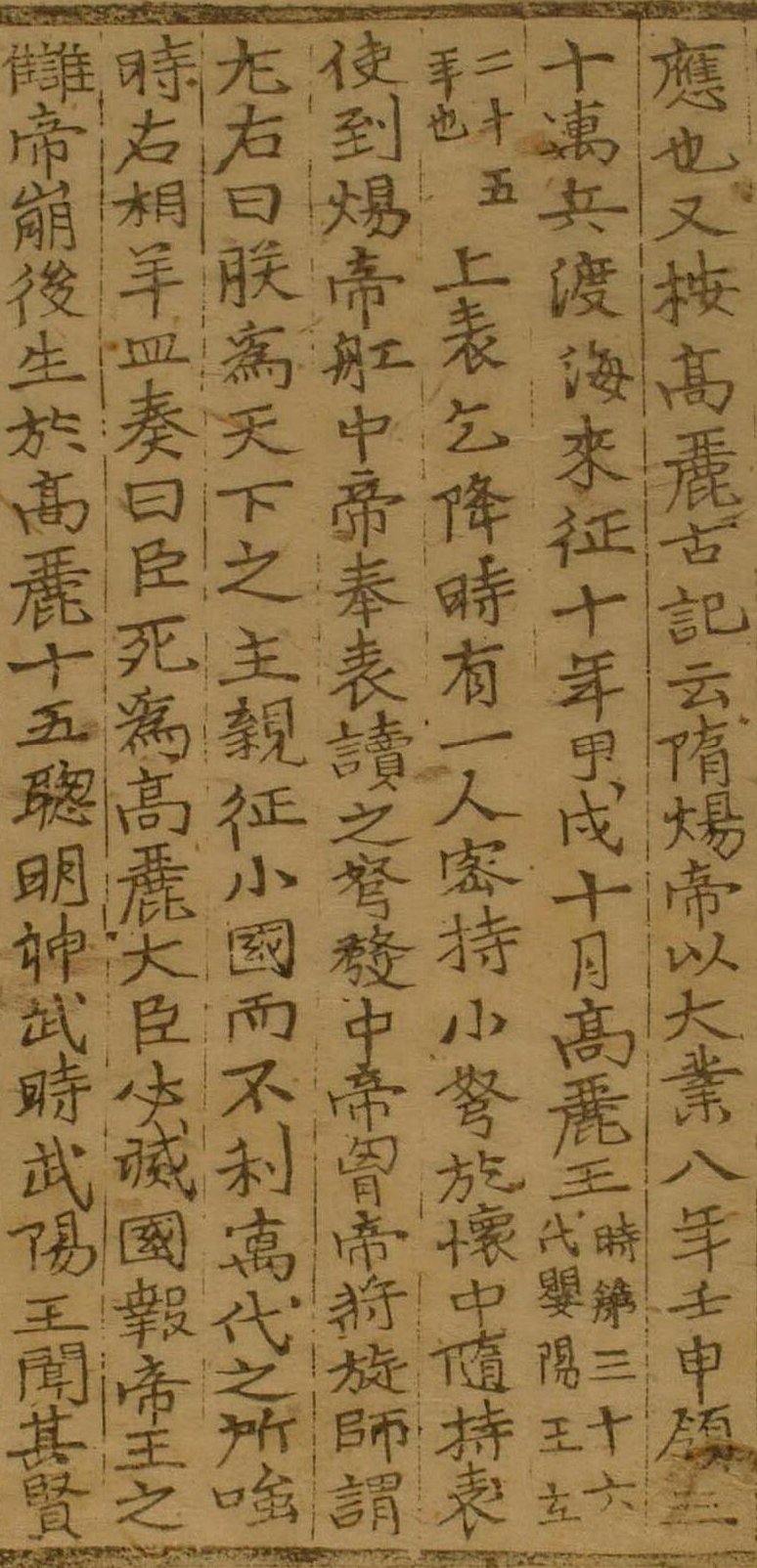
Ilsoo Cho: Limits to Sinocentrism: Persistence of Nativist Discourses of Identity in Chosŏn Korea
Limits to Sinocentrism: Persistence of Nativist Discourses of Identity in Chosŏn Korea
Presented by Dr. Ilsoo Cho, Postdoctoral Fellow, Kyoto University
Date: January 11, 2022 Tuesday, 4:00pm (PDT) / January 11, Tuesday, 7:00pm (EDT) / January 12, Wednesday, 9:00am (KST) / November 3, Wednesday, 00:00am (GMT)
Register in advance for this meeting:
https://us02web.zoom.us/meeting/register/tZ0pduGopzgrE9eRWnR9bxL3umLyE3xSgQEN
After registering, you will receive a confirmation email containing information about joining the meeting.
Over the past generation, scholars have actively brought the sweeping legacy of the Mongol empire to light. Far from being a fleeting experience, the Mongol dominance over much of eastern Eurasia fundamentally altered the political cultures of the countries it ruled. Aiming to recreate the world-empire of Chinggis and Khubilai, what historian Timothy Brook translates as the “Great State” (M. yeke ulus), the early Ming rulers sought to incorporate all existing polities into a reinvigorated Sinocentric system. The Mongol experience also fundamentally changed Korea. The Koreans no longer saw themselves occupying an independent imperial sphere of their own, as they did so before the Mongol conquest, and internalized the Sinocentric worldview and Korea’s predetermined inferior position within it. In other words, through the Mongol experience, the Korean elites started to voluntarily self-identify their country as a vassal of the empire. In this sense, Ming China and Chosŏn Korea ideologically aligned themselves in tandem in creating the post-Yuan world order.
There is no denying the momentous impact the Mongols had, among other things, on the histories of China and Korea and the nature of post-Yuan Sino-Korean relations. But the Korean internalization of the Sinocentric worldview did not mean that the Koreans of Chosŏn imagined or operated their country only as a vassal of the Chinese empire or forgot about the nativist identity that existed before the Mongol subjugation. This presentation aims to reveal some of the nativist discourses of identity from Koryŏ that survived into the Chosŏn period. Designed to position Korea as a historical “rival” of China, these nativist discourses sought to magnify the world-historical significance of Korea. They argued that the Korean peninsula somehow paralleled China proper as a geographical entity, and the Chosŏn people’s ancestors “defeated” the unified empires of Sui and Tang China on the battlefields. By examining such discourses of nativism in Chosŏn, this presentation argues that the Chosŏn acceptance of Sinocentrism was far from total, and a sense of Korean identity as an independent geopolitical entity survived Korea’s subservience to Beijing.
About the Presenter
Ilsoo Cho (Ph.D. Harvard University 2017) is Japan Society for the Promotion of Science Postdoctoral Fellow at Kyoto University. He works on the history of Korean foreign relations, primarily focusing on how the Korean policymakers and elites of Chosŏn responded to the Ming-Qing transition and the rise of Tokugawa Japan over the 17th century. His most recent publication is "Imperial Loyalism and Political Fissures in Early Modern Japan" (Journal of Japanese Studies, 2021).

Jung Donghun: Emperor Between the Lines: Private Channels of Imperial Desire in Early Chosŏn-Ming Relations
Emperor Between the Lines: Private Channels of Imperial Desire in Early Chosŏn-Ming Relations
Presented by Professor JUNG Donghun, Seoul National University of Education
Date: November 2, Tuesday, 5:00pm (PDT) / November 2, Tuesday, 8:00pm (EDT) / November 3, Wednesday, 9:00am (KST) / November 3, Wednesday, 00:00am (GMT)
Please register here: https://us02web.zoom.us/meeting/register/tZUudOivqjwvG9EhOAdcykimETh1GXvwmdkK
Scholars have primarily analyzed the Chosŏn-Ming relations through the records left behind by the official machineries of state. While useful in tracking issues related to state-to-state interactions, such tendency also obscures other forms of interactions that have shaped the history of Chosŏn-Ming relations. This presentation introduces a hitherto little-known dimension in the bilateral relationship by focusing on the ways the Ming emperors, Yongle (r. 1402-1424) and Xuande (r. 1425-1435) in particular, utilized private, undocumented channels to manage the Ming’s relationship with Chosŏn Korea. And I would like to reveal a case of manipulation of Chinese history books that have not left any of these records.
At the official level, the Ming emperors maintained the empire’s Korea policy in tandem with the officialdom, leaving behind an extensive paper trail. The Ming officials recorded policy-related conversations for posterity and delivered formally written messages to Chosŏn. The Ming emperors and his officials utilized this official channel to manage issues of national importance such as horse trade or dealings with the Jurchens. However, emperors such as the aforementioned Yongle or Xuande maintained an unofficial, private channel as well. Both Yongle and Xuande ordered eunuchs to deliver unwritten messages to Chosŏn, repeatedly demanding beautiful women, falcons, rare food items, and even female cooks. The activities of such channel ended with the ascension of Zhengtong Emperor (r. 1435-1449; 1457-1464), who, for reasons personal and otherwise, did not make use of such private channels to interact with Chosŏn. Furthermore, Zhengtong even sent many of the Korean women who served his predecessors back to Chosŏn.
Both the Ming and Chosŏn remembered this history of private interactions differently. On the Korean side, records such as the Veritable Records of Sejong interpreted such private interactions as immoral, sometimes criticizing the Ming emperors as foolishly greedy. In China, Zhengtong Emperor’s officials even worked to “erase” the traces of such private channels. For instance, the so-called “three Yangs,” Yang Shiqi (1364-1444), Yang Rong (1371-1440) and Yang Pu (1372-1446), influential officials who worked on the compilation of the Veritable Records of Xuande Emperor, manipulated historical records in the process of compilation to make it look as if Xuande Emperor willingly chose not to use such channels of private interaction. This presentation concludes with an examination of politics behind such manipulations of history in the context of Sino-Korean relations.
About the Presenter
JUNG Donghun (Ph.D. Seoul National University 2016) is an assistant professor at Seoul National University of Education. He majored in premodern Korea-China relations, especially from the 10th to the 15th centuries. He claimed to be an expert in documents and wrote a doctoral thesis on diplomatic documents during the Goryeo Dynasty, but in fact, he traces the reality, institutions, and practices of diplomacy that were not included in the documents. Recently, he is interested in revealing how memories and records of history are made, transmitted, and how they are misunderstood, distorted, and manipulated. He is spending his days fighting them, questioning past historians and their records.
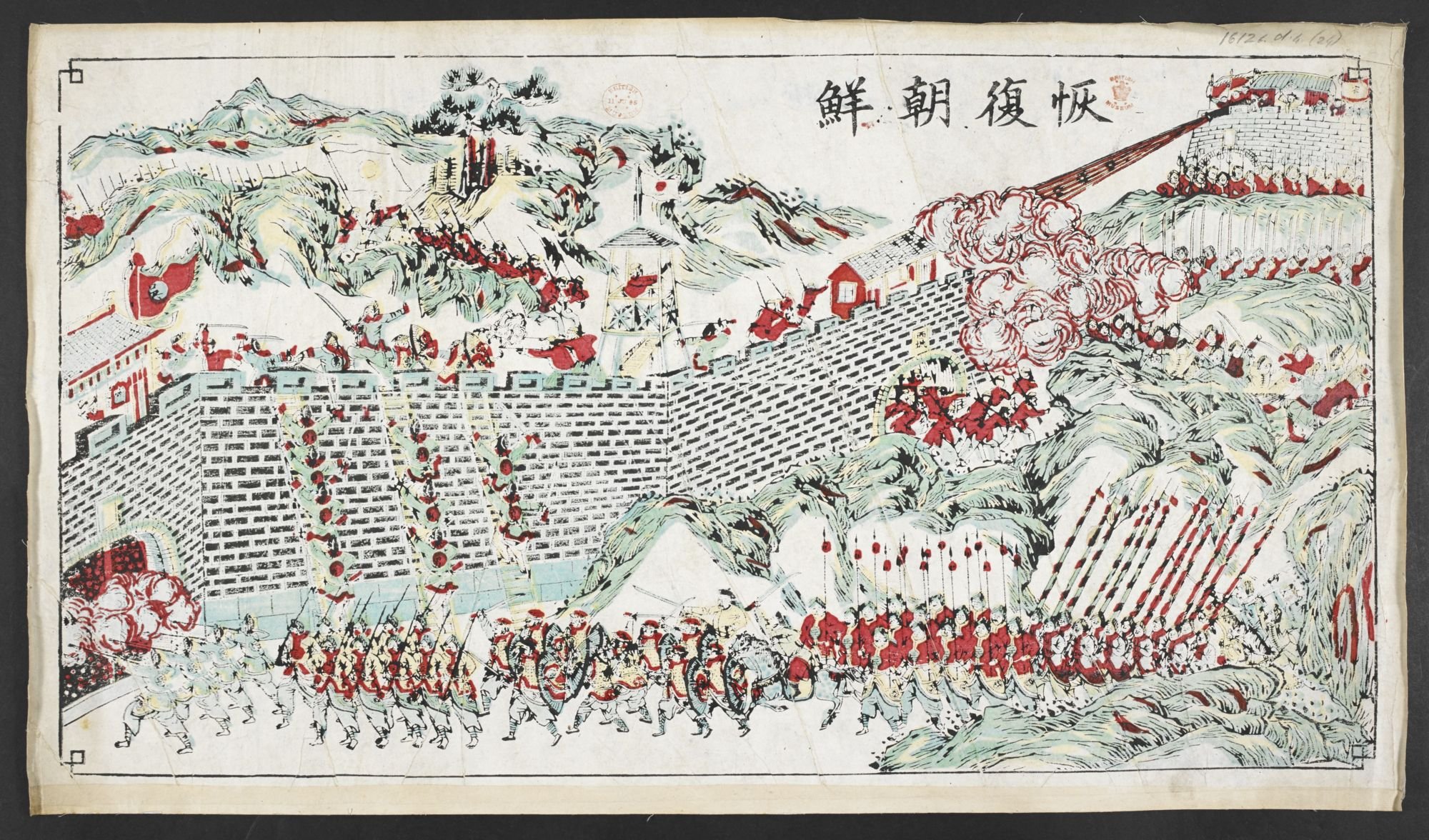
Chun Jihoon: Late Nineteenth Century Ching-Chosŏn Union of Upper State and Subject State
Late Nineteenth Century Ching-Chosŏn (淸-朝鮮) Union of Upper State (上國) and Subject State (屬邦/屬國) – 上屬體制
Presented by CHUN Jihoon
PhD candidate at Ruhr-Universität Bochum (AREA Ruhr doctoral program on Transnational Institution Building and Transnational Identities in East Asia)
Registration
Talk is scheduled for 8:00—9:30 AM Pacific/California; 5:00—6:30 PM Central European (Summer) Time
Register for the event here!
Ching-Chosŏn (淸-朝鮮) mutuality during the late nineteenth century is the key aspect to characterize the East Asian political upheavals during the nineteenth century. In order for the bilateral relations to be duly understood in their intrinsic subjectivity, the official discourses produced by the ruling elites of both dynasties at the time – instead of any interpretive frames projected onto them later on, such as ‘tribute/tributary system’, ‘multilateral imperialism introduced by the Ching to Chosŏn’, or ‘Zongfan (宗藩) system’ – should be critically examined anew. Existing primary historical sources indicate that 上國-屬邦 (“upper state”, “subject state”), and 屬邦體制 (“subject state-system”), encapsulated such Ching-Chosŏn interdependency particularly during the late nineteenth century. 上國 was matched with “confederation”, “federal government”, “central government” (of a (con-)federal union), among other terms, in corresponding texts of some prominent Western legal treatises translated in East Asia since the 1860s. Also, the term 屬邦/屬國 (subject state, dependent polity), to be paired with 上國, tended to signify semi-sovereign (半主) polity that depended on more powerful polities’ protection, as did 屛藩 (outer vassal) and 藩屬 (vassal dependency).
大淸國屬高麗國旗, 通商章程成案彙編 (1886)
This complementing pair of 上國-屬邦, which was used to officially designate the Ching-Chosŏn dyadic union by the contemporary elites, suggests a hierarchy of sovereignty, composed of superior sovereignty of higher-authority upper state as the protector, and subordinate sovereignty of subject state as the protected. The superior sovereignty of upper state within the East Asian context seems to have been represented as “suzerainty.” The Ching-Chosŏn union was such that suzerain-vassal (or overlord-lord) relations and protectorate, both in Western sense, on the one hand, and a (con-)federal polity in a Confucian imperial formation, on the other, were all synthesized in a transcendental construct for coordinated military and diplomatic functions to its one grand negotiated sovereignty. The appellation of 皇淸朝鮮, or imperial-Ching-Chosŏn, may connote such an East Asian construct.
恢復朝鮮得勝捷圖 (1894), Sino-Japanese War Prints in the British Library.
About the Speaker
CHUN Jihoon, PhD candidate at Ruhr-Universität Bochum (AREA Ruhr doctoral program on Transnational Institution Building and Transnational Identities in East Asia), is currently working on a dissertation project titled “"Cherishing the Small, Serving the Great" [字小事大] Collapsed upon "Public Law of All Nations" [萬國公法]: Ching-Chosŏn [淸-朝鮮] Union of Upper State and Subject State During 1882-1895.” The project examines Ching-Chosŏn contemporary elites’ perceptions of each other’s polity in the context of how the interpretations, doctrines, and power rationales of "international law" became manifest in their bilateral relations. In 2019, he conducted field research at Tsinghua University and Shanghai University. At Ruhr-Universität Bochum in 2018, he taught a seminar course on North Korean leadership and Juche (主體) Ideology. As Korea Foundation Junior Scholar, he was affiliated with the North Korea International Documentation Project of the History and Public Policy Program at the Woodrow Wilson International Center for Scholar in Washington, D.C., in 2014.

Sora Kim: For Whom the Line is Drawn: Korean Indigenous Conceptions of Boundary in the 19th Century and Changes in the Colonial Period
For Whom the Line is Drawn: Korean Indigenous Conceptions of Boundary in the 19th Century and Changes in the Colonial Period
Presented by Dr. Sora Kim
Curator & Researcher, Kyujanggak Institute for Korean Studies, Seoul National University
Please Register Here:
https://us02web.zoom.us/meeting/register/tZMkf-qurzotGtxJaJMx9ccMbNSI_lLbrg06
Modern law treats land as real estate, subject to rights of ownership. Land must be immobile and clearly partitioned. Pieces of land are described on cadastral maps, with a link to a unique and permanent location. Yet, before the advent of modern law, how did people recognize each piece of land? The Joseon dynasty made numerous maps and conducted various land surveys. However, there was no sense that land should be divided by drawing lines on paper. Beyond a mere object of ownership, land was considered a basis for feeding humans. Hence, conceptions of land existed in by-play with human activity. Boundaries could not be drawn without consideration of local conditions such as the status of cultivation. This paper will demonstrate the Korean indigenous senses of boundary in the nineteenth century. The Gwangmu Land Register will be compared with land registers and cadastral maps from the Japanese colonial period to reveal key characteristics of late Joseon conceptions of land demarcation. I will show how boundaries shifted between humans and land, among plots, and within Korean society. Moreover, I highlight how new types of land demarcations in turn separated humans from their environment and reconceived land as immovable (real) estate.
Kwangmu 光武 Land Register. In the second row, information of the four neighboring plots is recorded.
Source: Chungcheongnam-do Hansan-gun Yang’an 忠淸南道韓山郡量案 (奎17672 vol. 9). Kyujanggak Institute for Korean Studies.
Map Matching Process Using JigsawMap Software
Sora Kim (Ph.D. Seoul National University 2021) is a Koreanist who explores the socio-economic history of Joseon Dynasty. She is trying to interpret historical phenomenon from the perspective of the people who lived at the time. Land Registers after the eighteenth century are mainly analyzed via comparative methodology with modern registers using specially developed software. She is specialized in land taxation mechanisms and principles in the late Joseon Dynasty. Also, uncovering the meaning of land itself and the perception of space of the people in the dynasty are important research topics. She is currently working as a curator & researcher (학예연구사) at the Kyujanggak Institute for Korean Studies, Seoul National University.

Jeanhyoung Soh: Cheonha do 天下圖 and the Reception of Renaissance Geography in Late Joseon Korea
Cheonha do 天下圖 and the Reception of Renaissance Geography in Late Joseon Korea
Presented by Dr. Jeanhyoung Soh
Cheonha do 天下圖 (Map of All Under Heaven), which was circulated widely in Korea from the seventeenth to the nineteenth centuries, is famous for the mixture reflecting the new geographic information from Europe and the traditional geographic thought. In Cheonha do, the Earth is depicted as round, and the continents and islands are filled with strange countries of the Shanhai jing. It started appearing after the circulation and reproduction of the Kunyu wanguo quantu 坤輿萬國全圖, the “Wanguo quantu” 萬國全圖 (1623) included in the Zhifang waiji 職方外紀 (1623), and the Kunyu quantu 坤輿全圖 (1674) in Korea. The authors of Cheonha do, however, were generally anonymous, so it is not easy to interpret their intentions in making such maps. The maps themselves also give us little background information.
To understand this unique map, we need to reconstruct the context that relates the maps to a wide range of texts, from literati’s writings to novels. In reconstructing the intellectual context that gave rise to the Cheonha do, I show how the literati’s various writings articulate a desire to know about the countries outside of the Chinese tributary system, which did not always lead to openness. In this presentation, I explain how the hospitality and hostility to countries outside of the Chinese tributary system were based on the newly constructed fictional thinking -influenced by the incoming geographic knowledge- and then argue that Cheonha do reflects both the reception of new geographic knowledge as well as an extension of the idea of a central Chinese civilization (Zhonghua 中華).
“Cheonha chongdo” in Yeojido, manuscript, undated, collection of National Museum of Korea, 32cm x 17.8cm
About the speaker
Dr. Jeanhyoung Soh (Ph.D Seoul National University 2016) is a research fellow at the Institute of Humanities, Seoul University. Dr. Soh is a political and intellectual historian of Early Modern Korea, focusing on political language and rhetoric in the 18th and 19th centuries. She is working on Jesuit translations of Aristotles’ works, Renaissance maps, and catechisms that caused Korean political language and thought to change. She was a Henry Luce postdoctoral fellow at The Ricci Institute for Chinese-Western Cultural History, the University of San Francisco, in 2018. She recently organized the international workshop “Aristoteles Asianus: Aristotles' works, the Coimbra texts, and Jesuits’ Chinese translations in the seventeenth century.”
Register for this event here

